|
Government Spending Is The Problem The late, great economist Milton Friedman said, "The real problem is government spending." This is true as spending comes before taxes or regulations. In fact, if people didn't form a government or politicians didn’t create new programs, then there would be no need for government spending and no need for taxes. And if there was no government spending nor taxes to fund spending then there would be no one to create or enforce regulations. While this might sound like a utopian paradise, which I agree, there are essential limited roles for governments outlined in constitutions and laws. Of course, most governments are doing much more than providing limited roles that preserve life, liberty, and property. This is why I have long been working diligently for more than a decade to get a strong fiscal rule of a spending limit enacted by federal, state, and local governments promptly under my calling to "let people prosper," as effectively limiting government supports more liberty and therefore more opportunities to flourish. Fortunately, there have been multiple state think tanks that have championed this sound budgeting approach through what they've called either the Responsible, Conservative, or Sustainable State Budget. I recently worked with Americans for Tax Reform to publish the Sustainable Budget Project, which provides spending comparisons and other valuable information for every state. This groundbreaking approach was outlined recently in my co-authored op-ed with Grover Norquest of ATR in the Wall Street Journal. When Did This Budget Approach Begin? I started this approach in 2013 with my former colleagues at the Texas Public Policy Foundation with work on the Conservative Texas Budget. The approach is a fiscal rule based on an appropriations limit that covers as much of the budget as possible, ideally the entire budget, with a maximum amount based on the rate of population growth plus inflation and a supermajority (two-thirds) vote to exceed it. A version of this approach was started in Colorado in 1992 with their taxpayer's bill of rights (TABOR), which was championed by key folks like Dr. Barry Poulson and others. (picture below is from a road sign in Texas) Why Population Growth Plus Inflation? While there are many measures to use for a spending growth limit, the rate of population growth plus inflation provides the best reasonable measure of the average taxpayer's ability to pay for government spending without excessively crowding out their productive activities. It is important to look at this from the taxpayer’s perspective rather than the appropriator’s view given taxpayers fund every dollar that appropriators redistribute from the private sector. Population growth plus inflation is also a stable metric reducing uncertainty for taxpayers (and appropriators) and essentially freezes inflation-adjusted per capita government spending over time. The research in this space is clear that the best fiscal rule is a spending limit using the rate of population growth plus inflation, not gross state product, personal income, or other growth rates. In fact, population growth plus inflation typically grows slower than these other rates so that more money stays in the productive private sector where it belongs. To get technical for a moment, personal income growth and gross state product growth are essentially population growth plus inflation plus productivity growth. There's no reasonable consideration that government is more productive over time, so that term would be zero leaving population growth plus inflation. And if you consider the productivity growth in the private sector, then more money should be in that sector at the margin for the greatest rate of return, leaving just population growth plus inflation. Population growth plus inflation becomes the best measure to use no matter how you look at it. Given the high inflation rate more recently, it is wise to use the average growth rate of population growth plus inflation over a number of years to smooth out the increased volatility (ATR's Sustainable Budget Project uses the average rate over the three years prior to a session year). And this rate of population growth plus inflation should be a ceiling and not a target as governments should be appropriating less than this limit. Ideally, governments should freeze or cut government spending at all levels of government to provide more room for tax relief, less regulation, and more money in taxpayers' pockets. Overview of Conservative Texas Budget Approach Figure 1 shows how the growth in Texas’ biennial budget was cut by one-fourth after the creation of the Conservative Texas Budget in 2014 that first influenced the 2015 Legislature when crafting the 2016-17 budget along with changes in the state’s governor (Gov. Greg Abbott), lieutenant governor (Lt. Gov. Dan Patrick), and some legislators. The 8.9% average growth rate of appropriations since then was below the 9.5% biennial average rate of population growth plus inflation since then, which this was drive substantially higher after the latest 2024-25 budget that is well above this key metric (before this biennial budget the growth rate was 5.2% compared with 9.4% in the rate of population growth plus inflation). This approach was mostly put into state law in Texas in 2021 with Senate Bill 1336, as the state already has a spending limit in the constitution. The bill improved the limit to cover all general revenue ("consolidated general revenue") or 55% of the total budget rather than just 45% previously, base the growth limit on the rate of population growth times inflation instead of personal income growth, and raise the vote from a simple majority to three-fifths of both chambers to exceed it instead of a simple majority. There are improvements that should be made to this recent statutory spending limit change in Texas, such as adding it to the constitution and improving the growth rate to population growth plus inflation instead of population growth times inflation calculated by (1+pop)*(1+inf). But this limit is now one of the strongest in the nation as historically the gold standard for a spending limit of the Colorado's Taxpayer Bill of Rights (TABOR) has been watered down over the years by their courts and legislators, as it currently covers just 43% of the budget instead of the original 67%. My Work On The Federal Budget In The White House From June 2019 to May 2020, I took a hiatus from state policy work to serve Americans as the associate director for economic policy ("chief economist") at the White House's Office of Management and Budget. There I learned much about the federal budget, the appropriations process, and the economic assumptions which are used to provide the upcoming 10-year budget projections. In the President's FY 2021 budget, we found $4.6 trillion in fiscal savings and I was able to include the need for a fiscal rule which rarely happens (pic of President Trump's last budget). Sustainable Budget Work With Other States and ATR When I returned to the Texas Public Policy Foundation in May 2020, as I wanted to get back to a place with some sense of freedom during the COVID-19 pandemic and to be closer to family, I started an effort to work on this sound budgeting approach with other state think tanks. This contributed to me working with many fantastic people who are trying to restrain government spending in their states and the federal levels. Here are the latest data on the federal and state budgets as part of ATR's Sustainable Budget Project. From 2014 to 2023, the following happened: Federal spending increased by 81.7%, nearly four times faster than the 23.1% increase in the rate of population growth plus inflation.
Result: American taxpayers could have been spared more than $2.5 trillion in taxes and debt just in 2023 if federal and state governments had grown no faster than the rate of population growth plus inflation during the previous decade. And this would be even more if we considered the cumulative savings over the period. My hope is that if we can get enough state think tanks to promote this budgeting approach, get this approach put into constitutions and statutes, and use it to limit local government spending as well, there will be plenty of momentum to provide sustainable, substantial tax relief and eventually impose a fiscal rule of a spending limit on the federal budget. This is an uphill battle but I believe it is necessary to preserve liberty and provide more opportunities to let people prosper. Sustainable State Budget Revolution Across The Country Below are the states and think tanks which I'm working with and this revolution is going, which you can find an overview of this budgeting approach in Louisiana and should be applied elsewhere. I update these periodically, successful versus not successful budgeting attempts being 20-7 so far.
If you're interested in doing this in your state, please reach out to me. For more details, check out these write-ups on this issue by Grover Norquist and I at WSJ, Dan Mitchell at International Liberty, and The Economist.
0 Comments
Originally published at Pelican Institute. It’s Geaux Time in Louisiana. The potential changes in Baton Rouge to remove barriers to work and let people keep more of their hard-earned money provide a more optimistic path for the Pelican State. This is much needed given the declining population over time and declines in employment for eight straight months. Let’s consider the latest data to see what’s really going on. The U.S. Bureau of Labor Statistics recently released Louisiana’s labor market data for February. These data provide details to evaluate how people are doing across the state. Louisiana’s unemployment rate increased to 4.2% per the household survey.
Employment has declined by 16,034 since March 2023, with employment declining in eight of the last eleven months.
Louisiana workers’ purchasing power continues to decline across most industries.
Figure 1. Louisiana’s Labor Market by Industry Economic growth has slowed, and GDP and personal income growth are below the U.S. average.
Bottom Line: Louisiana’s economy is mostly weak with some green shoots for growth. These past results are based on the state’s complicated tax system, high regulations, and excessive government spending that have resulted in a poor business tax climate, net out-migration, and one of the highest poverty rates in the country. But with changes in Baton Rouge this year, there is an opportunity for bold, pro-growth reforms.
These bold reforms include:
Originally published at Pelican Institute.
Spending, not taxes, is the ultimate burden of government. If you don’t spend money on a program, you don’t need to collect taxes to fund it. And if you don’t spend money on programs, the government can’t regulate things. Remember that government spending is paid for by the people, as the government creates nothing to earn income, so considering what people can afford is crucial. This is why it’s essential for governments at every level to narrow their scope to the essential functions enshrined in constitutions. Otherwise, spending grows too much and results in taxes being too burdensome on people. Governments across the country and the globe are spending too much. And it appears that a sustainable budget revolution is happening! I’ve been working for over a decade to help state, federal, and local governments create and adopt sustainable budgets that fund limited government. This is critical to keeping taxes and regulations lower than otherwise, so families and entrepreneurs have more of their hard-earned money in their pockets. This standard is called a fiscal rule or a tax and expenditure limit (TEL), which goes like this: a government’s budget growth cannot exceed the rate of population growth plus inflation. How does this simple rule work? This approach started in 2013 when I helped develop the Conservative Texas Budget. After years of excessive spending in Texas, we defined the narrative of a tangible cap on appropriations based on the rate of population growth plus inflation. There was no change in the state’s law right away, but this approach worked well for several sessions by helping keep spending within this rate, which represents the average taxpayer’s ability to pay for spending. Importantly, this is a maximum growth limit, as most states need to spend much less than this limit as they are already spending too much, which will help leave more money in people’s pockets. Over the years, this rule has been used to help state and local governments make their budgets more sustainable. One such victory came in 2021 when Texas put Senate Bill 1336 into law. The bill changed the state’s budget limit to not exceed the rate of population growth and inflation when it had been based on personal income growth. This was an extraordinary reform that took nearly a decade to accomplish. It’s not perfect, as it should be in the state’s constitution and should cover all state funds and use population growth plus inflation. But it’s one of, if not the, best in the country. The other spending limit that has long been the gold standard is the Taxpayer’s Bill of Rights (TABOR) in Colorado, which I recently outlined how it needed to be improved as it has been weakened over time. By working with think tanks, grassroots organizations, and lawmakers across the country, I’ve helped create and pass sustainable budgets for the following states: Alaska, Florida, Iowa, Michigan, Mississippi, Montana, South Carolina, and Tennessee. I’ve also worked with other states where a sustainable budget was proposed, such as Kansas and Louisiana, but hasn’t yet passed. Partnering with Americans for Tax Reform, I’ve contributed to creating the Sustainable Budget Project, which monitors state government spending and evaluates the adoption of sustainable budgets across all states. This Project has a slightly different methodology and purpose than the one outlined above, as the focus is on spending at the end of a budget period instead of the one I’ve been using for appropriations at the start of the appropriations process. Together, these approaches can help states define the narrative about the need for spending restraint on the budget process’s front and back end. Given the excessive spending by governments and the incentive to continue doing so, there should be as many safeguards as possible. As Louisiana enters a new year with a new session and new governor this year, lawmakers have an extraordinary opportunity to prioritize sustainable budgeting by adopting what we’re calling a Responsible Louisiana Budget. The Pelican Institute released the first iteration of the RLB last year and the second one this year. This isn’t just about fiscal responsibility; it’s an effort that will help the people of Louisiana prosper. It will do so by helping Louisianans not be overburdened by unnecessary taxes for more money in their pockets. It’s Geaux Time in Louisiana, and that includes sustainable budgeting! Originally published at Pelican Institute. The report to achieve Louisiana’s 2024-2025 Responsible Budget presents solutions to rein in the extraordinary growth of the budget in order to give the state a competitive advantage, much like those used in other states, such as Texas and Florida, limiting the amount of funding appropriated at the beginning of each fiscal year. Over the past decade, state spending has increased an average of 5.9% per year. Using the recommended Responsible Budget growth limit outlined in this report, state spending would have increased by only 2.1% per year, which would allow the excess state revenue to be saved for tax relief for Louisiana families. Louisiana’s economy needs a comeback. While there are many reasons why, a major reason is that the state has now had a declining population for seven straight years, and employment has declined for six consecutive months. While there are positive indicators on the surface, the reality is much different for many Louisianans. Let’s dive into the data and see what’s going on. The Pelican State has abundant resources, but many failed public policies keep Louisianans from flourishing. Louisiana’s population declines again as people move to other states. The U.S. Census Bureau recently released population data for each state. Louisiana’s population declined in 2023 by 14,274 people to 4.57 million. Making matters worse, this was the seventh consecutive year that Louisiana’s population has declined to a total of 107,000 fewer people residing here since 2016. The new data also provides net domestic migration, telling us how many people enter or exit the Pelican State from other states. Figure 1 shows how Louisiana had the sixth largest outmigration to other states. The net outmigration for 2023 was 29,692 people, representing a 0.6% decline. Figure 1: Louisiana had the Sixth Largest Net Outmigration Source: Tax Foundation But that’s not the worst part; the state has had net outmigration for at least the last four years, with 110,709 people fleeing Louisiana for another state since 2020. This is a terrible trend for the state as families are broken up, people with higher skills and incomes typically leave, and the economy suffers. Of course, these declines in the population make many of the labor market measures look better than they would have had these people stayed in Louisiana. The U.S. Bureau of Labor Statistics recently released Louisiana’s labor market data for December to help us evaluate how people are doing across the state. Louisiana’s unemployment rate would be 5.5% if the working-age population hadn’t declined since February 2020 instead of the reported 3.7% rate.
Louisiana’s employment level from the household survey shows it has declined in seven straight months for a total decline of 29,450 jobs since May 2023.
Louisiana workers’ purchasing power continues to decline across most industries.
Figure 2. Louisiana’s Labor Market by Industry Source: U.S. Bureau of Labor Statistics Economic growth has picked up, but personal income lags the U.S. average.
Figure 3: Personal Income Growth by State in Q3:2023 Source: U.S. Bureau of Economic Analysis
Bottom Line: Louisiana’s economy shows some signs of strength when you look at the broader economy. But those gains do not reflect what is going on in the labor market so there is likely going to be less growth in the economy soon with more job losses to come. Given these results, there will not be improvements in the state’s poor business tax climate, net out-migration of Louisianans, or Louisiana having one of the highest poverty rates in the country—unless bold, pro-growth reforms are enacted soon. These bold reforms include:
Originally posted at Pelican Institute where I co-wrote it with Jamie Tairov. The Pelican Institute has highlighted the need for better state budgeting and tax reform. This includes the Responsible Louisiana Budget (RLB), which was released earlier this year. The RLB shows that Louisiana’s budget has been growing at unsustainable levels, and that an improved growth factor for the expenditure limit and initial appropriations is needed. Recently, Americans for Tax Reform released a similar comparison for all 50 states, including Louisiana, in its Sustainable Budget Project. This report shows that, on the surface, Louisiana’s spending has not been as unsustainable as the RLB shows. Why is there a different outcome in the two reports?
Outcomes of Each Report The Responsible Budget model is currently being used successfully in other states to rein in spending. This is what Louisiana’s budget would have looked like had the RLB been employed over the last ten years.
Here are the findings from ATR’s Sustainable Budget study over the last decade:
Total spending in FY 22 was 34.4%, or $11.2 billion, higher than the improved expenditure limit. This means that a family of four is paying $8,800 more in taxes to pay for the excess spending, which is not sustainable spending. Is One Report Better Than the Other?
No. Both reports are accurate and serve different purposes. The RLB uses initial appropriations which helps lawmakers easily compare appropriation amounts from year to year as they are drafting the budget during session. Because it covers spending instead of appropriations, the ATR study is a backwards-looking metric that can be used for making longer-term spending decisions, but it will be limited in its use during a legislative session. Both reports compare the current expenditure limit with a proposed improved expenditure limit. The current limit is the three-year average of personal income growth, which is an extremely volatile measure. The proposed improved limit is the three-year average of population growth plus inflation. The RLB and ATR reports can work together, providing limits on the front and back end to ensure that spending remains responsible throughout the year. Both reports show recent elevated appropriations and spending. There is clearly room for budgeting restraint in Louisiana. These measures have benefits to lawmakers and the public so that they can have the tools necessary to restrain government spending and provide a responsible budget. Doing so will have many payoffs over time, including making the comeback in the Pelican State happen more quickly by eliminating personal income taxes, providing a more dynamic economy, and improving opportunities for people to flourish. Our new report highlights Louisiana’s economic situation based on the most recent data. The report is based on several key factors that indicate how the economy, labor market, and public policy influence the lives of everyday Louisianans. While some of these data indicate a relatively strong labor market–such as the historically low unemployment rate–there are underlying factors showing Louisiana’s economic struggle. Our Louisiana Comeback will happen through reforms that remove government barriers, bring jobs and opportunity back to Louisiana, and let people prosper. We must decide: Will we continue to hold on to the status quo (which hasn’t done us any favors), or will we embrace the significant reforms necessary to bring jobs and opportunity to Louisiana? We need the latter. Read the full two-pager: Economic Report Oct 2023 Originally published by Pelican Institute. At first glance, you might think that Louisiana’s economy is doing great. After all, the state’s September 2023 jobs report shows record lows for the unemployment rate at 3.3% and and people unemployed at 67,930. Louisiana Governor John Bel Edwards cheered these data in a press release: “Louisiana continues to set records for low unemployment. We’ve had 30 consecutive months of job growth and have added nearly 280,000 jobs since the worst of the pandemic. In fact, our employment levels are now higher than they were before COVID. Experts believe that our bipartisan work to grow and diversify our economy will benefit Louisiana for years to come. Economist Dr. Loren Scott recently predicted that Louisiana will add more than 80,000 jobs over the next two years. And we’ve done it all while overcoming historic natural disasters and a state government budget crisis. I have never been more optimistic about Louisiana than I am today.” But does what you hear in the media or by some politicians match reality? Let’s dive into the data to see how things are going for Louisianans. We should know that the Pelican State has many fantastic resources but too many failed public policies that keep Louisianans from reaching their full potential. This has been the case for a while, but most recently, the jobs reports indicate slowing employment growth and a declining labor force. Work matters, as it brings about dignity and self-sufficiency and leaves fewer people needing help from government safety net programs. These data below show that while the labor market data can look good on the surface, there are many real problems facing Louisianans that need to be addressed by state leaders. Fortunately, the Pelican Institute’s “Comeback Agenda,” including our fiscal reform plan, supports ways to overcome these challenges. Here are key issues in Louisiana’s economy. Table 1 provides Louisiana’s labor market data for important dates from the U.S. Bureau of Labor Statistics. These dates are December 2007, when the Great Recession started; February 2020, when the last expansion peaked before the COVID-19-related shutdowns; April 2020, when the shutdown recession ended; and September 2023, for the latest data available. The unemployment rate would be 4.9% if Louisianans hadn’t left the state since pre-COVID. The unemployment rate is calculated using data from the household survey and isn’t a great measure of the labor market. This is because unemployment in the numerator and the labor force in the denominator are volatile measures as people enter and exit Louisiana and the labor force. Considering data from pre-COVID to compare with the Governor’s statement, the working-age population is down by 36,329 to 3.5 million. Even though the labor force is up 1,566 since then, the many people who have left the state keep the unemployment rate lower than otherwise. If we include the departed population in the labor force and unemployment, the unemployment rate would be 4.9%, substantially higher than the reported 3.3%. Moreover, if the working-age population hadn’t declined, the labor force participation rate would be 59.3% instead of the 58.9% rate today. Louisiana’s employment has not increased for 30 consecutive months. While the Governor is correct that there have been about 280,000 jobs since pre-COVID, there have not been “30 consecutive months of job growth.” The payroll survey shows that nonfarm employment is up 270,300 and the household survey shows that employment is up 295,065 since February 2020. There was an increase in nonfarm employment by 8,900 jobs in September (6th most in percentage terms of any state). But this was after cumulative losses of 3,600 jobs during June and July for an increase of just 18,100 jobs over the last four months. Over the last 30 months, there have been seven months with declining net jobs in the payroll survey and nine months with declines in the household survey, which has had four straight months of declines for a total of 17,564 fewer people employed in that period. So, Louisianans have actually been struggling over the last 30 months. Louisiana will add a projected 80,000 more jobs over the next two years, indicating slower job creation. Considering nonfarm employment over a longer period, it is up by 46,000 jobs from a year ago (20th most in the country) for a 2.4% increase (12th fastest). This would result in 92,000 jobs added over the next two years if this pace continued, but the Governor says one projection is just 80,000 jobs added over that period, indicating slower job creation. Also, nonfarm employment is down by 13,700 jobs since February 2020 (one of only a few states that have not regained lost jobs since then). Jobs in the private sector increased by 520 last month to 1.66 million, and government employment increased by 8,300 jobs to 320,500. There is growing weakness in the labor market, with some job losses and average weekly earnings not rising as fast as CPI inflation of 3.7% in many industries (Figure 1). Another weakness is economic growth. Table 2 shows how the U.S. and Louisiana economies performed since 2020, as reported by the U.S. Bureau of Economic Analysis. The steep declines were during the shutdowns in 2020 in response to the COVID-19 pandemic, which was when the labor market suffered most. Figure 2 shows how the increase in real GDP in Louisiana of +1.4% in Q1:2023 ranked 31st in the country to $289.9 billion, after an annual decline in economic output by -1.8% in 2022 which was the second worst in the country. The BEA also reported that personal income in Louisiana grew at an annualized pace of +6.2% (ranked 27th) to $258.5 billion in Q1:2023 (above +5.1% U.S. average). There was personal income growth of 0.0% in 2022, ranking 50th of the states. Compared with neighboring states based on several measures there continue to be major concerns in Louisiana (see Table 3). Bottom Line: Louisiana’s economy is weak when it comes to the labor market and economic growth and when compared with other states. Bold, transformational reforms can unleash the potential of Louisianans and make the state more competitive.
Originally published at Pelican Institute. The headlines are filled with positive economic news for Louisiana, boasting record-low unemployment rates and impressive job growth. But digging deeper into the data reveals a more nuanced and challenging economic landscape that deserves attention and fast action.
At first glance, Louisiana's unemployment rate appears to be a shining success at just 3.3%. Governor John Bel Edwards has been vocal about the state's accomplishments, boasting a record low unemployment rate, "30 consecutive months of job growth," and the addition of nearly 280,000 jobs since the pandemic's peak. But the unemployment rate only tells part of the story. Looking at the data from before the COVID-19 pandemic, there are 36,329 fewer people of working age in Louisiana, totaling 3.5 million. Even though the number of people actively looking for work has increased by 1,566, many have left the state for better opportunities. This is why the unemployment rate seems lower than it is. Had those 36,329 people stayed in Louisiana to be part of the workforce and unemployment numbers, the real unemployment rate would be 4.9%, which is 48% higher than 3.3%. This statistic challenges the narrative and reveals underlying workforce participation and retention challenges. Considering jobs added over the last 30 months, the Pelican State has had seven months of declining net jobs in the payroll survey and nine months with declines in the household survey. The latter measure has declined for four straight months resulting in 17,564 fewer people employed in that period, pointing to a turbulent job landscape. At the same time, Louisiana’s gross domestic product (GDP) has seen concerning ups and downs. In 2022, the state's real GDP shrank by 1.8%, making it one of the poorest performers in the nation. The most recent data indicate a modest 1.4% growth in the first quarter of 2023, ranking 31st in the country. These figures reveal economic instability and emphasize the need for a comprehensive approach to sustainable growth. Finally, assessing personal income figures for state residents reveals additional economic weakness. The first quarter of 2023 showed more promising trends for state residents’ personal income, with personal income growing at an annualized rate of 6.2%, ranking 27th nationwide. However, that has yet to make up for 2022, when personal income did not grow at all, making Louisiana’s personal income last among the 50 states that year. The results are in: Louisiana’s economy is lacking, and transformative reforms are vital to unlock the Pelican State’s potential. If Louisiana continues on its current path, it risks maintaining a poor business tax climate, facing ongoing outmigration of residents, and perpetuating one of the highest poverty rates in the country. Implementing better spending restraint, substantial tax reform, significant regulatory relief, universal education freedom, enhanced workforce development, and improved safety net programs are practical solutions that would empower Louisianans. Fortunately, a recent poll underscores that these essential reforms are not only needed but also desired by Louisiana's residents. The Pelican State has the potential to become "the next big thing," a place where people want to move, provided its leaders take fast action to secure a brighter and more prosperous future for all. This is possible given a new governor and many state lawmakers next year. Originally published at The Center Square. What is going on in Louisiana’s economy? How is the labor market doing for Louisianans? What you hear in the media or by politicians may not always match reality. The Pelican State has many fantastic resources with educated people, eccentric culture, robust ports, abundant oil and gas production, and much more. But Louisianans can’t reach their full potential and flourish because of failed public policies, highlighted by job losses in two of the last three months and many still out of the labor force. The Pelican Institute’s “Comeback Agenda,” which includes our recently released tax and budget reform plan, provides a prosperous path forward. Let’s dive into the data, consider myths and realities, and note which policies would help.
Table 1 provides Louisiana’s key labor market data during important dates from the U.S. Bureau of Labor Statistics. These dates are December 2007, when the Great Recession started; February 2020, when the last expansion peaked before the COVID-19-related shutdowns; April 2020, when the shutdown recession ended; and August 2023, for the latest data available. These data indicate strength on the surface, but how are Louisianans really doing? In August 2023, the unemployment rate declined to 3.3%, with 68,814 people unemployed; both are the state’s record lows. Louisiana Governor John Bel Edwards cheered these points as a testament to his policies since he took office in January 2016. But are these data worthy of praise? Let’s start by looking at how the unemployment rate is calculated: unemployed divided by the labor force, which includes the employed and unemployed. This calculation can show a lower unemployment rate in multiple ways, including fewer unemployed with the same labor force or fewer unemployed and fewer in the labor force. These data are collected from a survey of households across the state. The first reason would be considered by most as a positive result, while the latter as mostly negative if people stopped looking for work because they couldn’t find it or opted to receive temporary government assistance. There were massive increases in the number of Louisianans enrolled in social safety net programs over the last three years, which likely changed people’s incentive to work. But considering what has happened in the labor market since January 2016, the result is not as rosy. Since January 2016, Louisiana’s working-age population has declined by 29,650 to 3.5 million. The labor force has declined by 40,236 to 2.1 million. The number of unemployed has declined by 59,966 to 68,814. These data reflect how Louisiana has had people leave the state for years, including the third highest net out-migration in the country last year. The situation today is much different than in January 2016. If we account for the decline of 40,236 in the labor force and say those people didn’t leave the labor force and are unemployed (understanding some of them may find employment, but we don’t know how many would), then the unemployment rate would be 5.1%. This unemployment rate is lower than the 6% in January 2016 but 55% higher than the reported 3.3% rate today. Moreover, if the working-age population hadn’t declined, the labor force participation rate would be 59.7% instead of the 59.0% rate today. Work matters, as it brings about dignity and self-sufficiency and leaves fewer people needing help from government safety net programs. These calculations show that while the labor market data can look good on the surface, there are many real problems facing Louisianans that need to be addressed by state leaders. There are obstacles imposed by the government that can be solved, and we need only look to Utah as an example of how states can do a better job of connecting citizens with employment and supportive services that lead to self-sufficiency.
Nonfarm employment is what economists most often report because the data are considered more consistent with the health of the labor market. This is collected from established businesses instead of households across the state. There was an increase in nonfarm employment by 7,400 jobs in August (9th most in percentage terms of any state). But this was after cumulative losses of 3,600 jobs during the prior two months for an increase of just 3,800 jobs over the last three months. Considering nonfarm employment over a longer period, it is up by 34,200 jobs from a year ago (23rd most in the country). But it is down by 20,900 since January 2016 and down by 28,000 since February 2020 (one of only ten states not to have regained all jobs since then). We can see where jobs are added in Louisiana by diving deeper into these data. Jobs in the private sector increased by 6,700 last month to 1.65 million, and government employment increased by 700 jobs to 316,600 last month. Compared with a year ago, the private sector added 29,600 jobs, and the government added 4,600 jobs. But the private sector is down by 8,700 since January 2016 and down by 13,600 jobs since February 2020. There is growing weakness in the labor market, with job losses and average weekly earnings not rising as fast as CPI inflation of 3.7% in many industries (Figure 1). Overall, these data show the hardship that many Louisianans are facing across the state.
Table 2 shows how the U.S. and Louisiana economies performed since 2020, as reported by the U.S. Bureau of Economic Analysis. The steep declines were during the shutdowns in 2020 in response to the COVID-19 pandemic, which was when the labor market suffered most. Figure 2 shows how the increase in real GDP in Louisiana of +1.4% in Q1:2023 ranked 31st in the country to $289.9 billion, after an annual decline in economic output by -1.8% in 2022 which was the second worst in the country. The BEA also reported that personal income in Louisiana grew at an annualized pace of +6.2% (ranked 27th) to $258.5 billion in Q1:2023 (above +5.1% U.S. average). There was personal income growth of 0.0% in 2022, ranking 50th of the states.
Bottom Line: Louisiana’s economy is weak when it comes to the labor market; economic growth and reforms can unleash the potential of Louisianans and make the state more competitive.
Originally posted at Pelican Institute. Read the full paper here. Here's the original post by the Pelican Institute. Pelican Institute reform plan would flatten personal and corporate taxes, boost jobs in first year. Baton Rouge — As candidates for Louisiana governor debate the future of the state, a new poll shows Louisiana voters strongly support phasing out the state’s income tax while ushering in fiscal responsibility. Today, the Pelican Institute has released a new tax reform plan that would do just that—transform the state, make it more competitive, pave the way for more and better jobs, and launch Louisiana’s comeback. By a wide margin, 58% of Louisiana voters support phasing out the state income tax (only 20% oppose), and 66% want leaders to prioritize responsible budgeting and limiting the growth of state spending to bring fiscal stability to state government (only 9% oppose). Voters also strongly back education freedom; 62% support giving Louisiana parents the ability to use state funds to select the school of their choice for their child’s education (only 25% oppose). The poll, which was conducted by Cor Strategies in partnership with the Pelican Institute, can be seen here. In Louisiana’s Comeback: A Tax Reform for Our Brighter Future, the Pelican Institute identifies the state’s significant tax problems and proposes a path to set the state in a brighter direction, including flattening the personal and corporate income taxes to 3.5% rates, reducing the number of tax preferences, eliminating the corporate franchise tax and the inventory tax, and reforming the budget to limit the growth of spending, among other changes. “If we are to write Louisiana’s comeback story, we first have to get our fiscal house in order and fix our broken tax code that has, for far too long, landed Louisiana at the bottom of every good list and the top of every bad list,” said Daniel Erspamer, Chief Executive Officer of the Pelican Institute. “Louisiana families are suffering, and too many of our best and brightest are leaving the state to find opportunity elsewhere. It’s time to embrace a bold vision for tax reform proven to bring jobs and opportunity – not to mention our kids and grandkids – back to our state.” Louisiana suffers under a tax system that is brutally punishing for families and businesses. It is painfully progressive, thereby increasing tax rates as more income is earned—and that disincentivizes greater earnings, reduces productivity, and slows economic growth. Meanwhile, tax preferences create exemptions and deductions that make compliance costly, pick winners and losers, and narrow the tax base. That, in turn, requires an even higher tax rate to collect needed revenue for funding limited government. On top of that, Louisiana’s taxes on businesses are particularly burdensome, including a triple taxation on profit, investment, and inventory, that together stifle economic growth. The Pelican Institute’s tax plan solves these problems with a proposal that will kickstart the economy into immediate growth and increase the number of available jobs in the state in the first year. The plan is the latest part of the Pelican Institute’s Comeback Agenda released in March of this year, which lays out a series of policies critical to the state’s future, including tax and budget reform, guaranteeing universal education freedom, enhancing public safety, and reducing regulatory barriers to work. A two-page guide to the reform can be read below and a one-pager below that. This Week's Economy Ep. 23 | Less Job Growth, But More GDP Growth? GOP Debate Thoughts & Recession8/25/2023 Today, I cover: 1) National: Declining stock market, depreciating dollar, the Jackson Hole conference, Fed's balance sheet, revised lower job growth, questionable strong GDP growth, and why I believe we've been in a recession; 2) Louisiana: The Pelican State's latest job-market report, why employment is down, and what Louisiana can do to make a strong comeback; and 3) Other: My thoughts on the most recent GOP debate, my hopes for future debates, and more. You can watch this episode and others along with my Let People Prosper Show on YouTube or listen to it on Apple Podcast, Spotify, Google Podcast, or Anchor. Please share, subscribe, like, and leave a 5-star rating!
For show notes, thoughtful insights, media interviews, speeches, blog posts, research, and more, please check out my website (www.vanceginn.com) and subscribe to my newsletter (www.vanceginn.substack.com), share this post, and leave a comment. Louisiana has many fantastic resources with educated people, eccentric culture, robust ports, abundant oil and gas production, and much more yet poor public policies stifle this potential, highlighted by job losses in July 2023. The Pelican Institute’s “Comeback Agenda” shows the path forward to let people prosper. Table 1 provides Louisiana’s key labor market information over time, including the latest data for July 2023 that was recently released by the U.S. Bureau of Labor Statistics. These data indicate some strength on the surface, but we must look deeper to see how Louisianans are really doing in this economy. Louisiana’s unemployment rate is lower but for the wrong reasons as people continue to leave the labor force.
Overview of the labor market in industries in Louisiana.
Compared with neighboring states based on several measures there continue to be major concerns with the labor market and other areas in Louisiana. Another one of those is economic growth. Table 2 shows how the U.S. and Louisiana economies performed since 2020, as reported by the U.S. Bureau of Economic Analysis.
Louisiana has one of the highest poverty rates out of all the states, but why? That’s a complicated question for which there are several right answers, some of which are more difficult to solve than others. But one contributing factor isn’t so complicated, and it’s something legislators can and should address soon: safety-net program dependance. Research reveals that safety-net programs often trap people in poverty rather than lift them out, and a high percentage of Pelican State residents depend on these programs. Therefore, to promote long-lasting self-sufficiency, and thereby a more prosperous economy, Louisiana must reform its safety-net programs. Louisiana had 17,670 safety-net programs users per 100,000 in 2019, making it the second-most safety-net dependent state in the country behind only New Mexico. Meanwhile, 18% of Louisianans rely on SNAP (food stamps) or approximately 1 in 6 residents compared with 1 in 8 individuals participating in SNAP nationally. While SNAP helps families in the short-term experiencing hardship, the reality is that many participants show that the program doesn’t help them reach long-term independence, but can in fact keep them from it. SNAP contains work disincentives, which explains why its participants have low employment rates. Angela Rachidi, senior fellow and Rowe scholar in poverty studies at American Enterprise Institute, recently reported “that the employment-to-population ratio among work-capable SNAP participants without dependents has hovered between 15 and 30 percent over time. A 2018 report by the Council of Economic Advisors analyzed household survey data and found that a slightly higher share of SNAP participants worked while receiving SNAP, but even their analysis suggested that 50 percent or fewer worked” (see Figure 1). Safety-net programs like SNAP are often referred to as “anti-poverty” programs, since that’s the supposed end goal. But when up to a third of work-capable SNAP recipients remain unemployed over time, the path out of poverty for these participants is not readily apparent. Without incentives and supports that encourage employment and self-sufficiency, users are enabled to stay dependent, and therefore, stuck in poverty. This cycle harms the individual, communities, and thereby, Louisiana. As if the challenges for Louisiana contained within SNAP weren’t bad enough, other safety-net programs compound the problem. The Temporary Assistance for Needy Families (TANF), which provides grants to states to purportedly help people get out of poverty, lacks efficacy. A performance audit in Louisiana found that the state does “not collect sufficient outcome information to determine the overall effectiveness of TANF-funded programs and initiatives. The current performance measures that DCFS uses to monitor and evaluate TANF programs are mostly output and process measures which are not useful in determining whether programs are effective at meeting TANF goals.” One of TANF’s official goals is to “end the dependance of needy parents on government benefits through work, job preparation, and marriage.” Considering that Louisianans on TANF have the rate for those participating in the labor force in the nation, at just 3.5% in the fiscal year 2020, it hardly seems that TANF is accomplishing its goal. Work is integral to human dignity and staying out of poverty; addressing the work participation rate will lead to more productive and happy people and, thereby, a better state economy as residents are equipped and eager to contribute to society. This starts with better-managing safety net programs like SNAP and TANF while connecting participants with work. Louisiana can draw valuable lessons from Utah’s effective implementation of a “no wrong door” strategy for streamlining government programs. In the 1990s, Utah successfully integrated various safety-net programs, such as employment services, vocational rehabilitation, and TANF, resulting in simplified eligibility requirements, a unified application process, and the assignment of dedicated case managers to guide individuals through the system. Utah improved the quality of services and enhanced administrative efficiencies, and achieved cost savings through this approach. These reforms equipped individuals to get their needed help and become self-sufficient. Louisiana must strive to empower its work-capable population, enabling them to pursue opportunities for growth and flourishing within the state. With a streamlined and effective system like Utah’s, Louisiana can transition from safety-net programs to employment, reducing poverty and fostering prosperity.
That’s part of the Pelican Institute’s “Comeback Agenda” for Louisiana. The time is now. Originally published at Pelican Institute. Key Point: Louisiana’s labor market shows improvement on the surface but there are underlying problems because of poor public policies which can be overcome with the Pelican Institute’s “Comeback Agenda.” Louisiana’s Labor Market: Table 1 shows Louisiana’s labor market information over time until the latest data for May 2023 which was released this month by the U.S. Bureau of Labor Statistics. The BLS report has two surveys which provide different information about the labor market. The payroll survey provides information on nonfarm employment based on responses by established employers for at least two years. The household survey provides responses from households for those who have a job and their demographics, which determines measures like the labor force participation rate and unemployment rate. The payroll report shows that Louisiana’s net total nonfarm jobs increased by 4,600 jobs last month (+0.2%) to 1.96 million employed, which is 29,700 jobs below the pre-shutdown level in February 2020. Private sector employment was up by 4,400 jobs (+0.3%) to 1.65 million and government employment increased by 200 jobs (+0.1%) to 317,100 last month. Compared with a year ago, total employment was up by 48,400 jobs (+2.5%), with the private sector adding 41,700 jobs (+2.6%) and the government adding 6,700 jobs (+2.2%). This results in about 85% of all nonfarm jobs being in the productive private sector while 15% is in the government sector, which is the same as the share for the entire U.S. Figure 1 shows the percent changes in changes in employment, average weekly hours, and average weekly earnings by industry over the last year. The industries leading the way in increases in employment are mining and logging, construction, and financial activities while information and other services have the largest declines. Average weekly hours have declined or been flat in all industries with manufacturing, trade, and professional and business services declining the most. Average weekly earnings increased the most in manufacturing and education and health services but declined in most industries with trade and financial activities declining the most. These data show the dichotomy between those in the labor market as there are industries gaining employment but average weekly earnings are falling in most cases and are falling even further when adjusted for inflation, hurting many chances for Louisianans to make ends meet. The household survey finds that the working-age population, defined as 16 to 64 years old, declined by another 894 people last month to 3.6 million, down 10,623 people over the last year, and down 34,106 people since February 2020. But the civilian labor force, defined as those who are working or looking for work, rose by 3,377 people to 2.1 million last month, 22,506 people over last year, and 27,910 people since February 2020. These figures result in a labor force participation rate of 59.6%, which is up from 58.8% from last year and up from 58.3% since pre-shutdown but well below the 61.2% rate in June 2009. But the number of employed has been increasing as it was up 2,363 over the last year, contributing to the slightly higher unemployment rate over the last year from 3.5% to 3.5%; but this rate remains lower than the 5.2% rate in February 2020. And a broader look at Louisiana’s labor market shows that Louisianans still face challenges with the continued decline in the working-age population which weighs on the labor-market shortage and long-term economic growth. And comparisons with neighboring states based on several labor market measures indicate concerns. Economic Growth: The U.S. Bureau of Economic Analysis (BEA) recently provided the real (inflation-adjusted) gross domestic product (GDP) and personal income for Louisiana and other states. Table 2 shows how the U.S. and Louisiana economies performed since 2020. The steep declines were during the shutdowns in 2020 in response to the COVID-19 pandemic, which was when the labor market suffered most. The increase in real GDP of +2.2% in Q4:2022 ranked 26th in the country, resulting in an annual decline in economic output by -1.8% in 2022 which was the second worst in the country. The BEA also reported that personal income in Louisiana grew at an annualized pace of +6.0% (ranked 32nd) in Q4:2022 (below +7.4% U.S. average). This resulted in personal income growth of 0.0% in 2022, ranking 50th of the states (see Figure 2). The growth rate for 2022 was driven by the negative $10 billion (-4.0-percentage points) in transfer payments from a decline in safety net payments as the expanded child tax credit expired and more people found jobs but increases in net earnings by $8.4 billion (+3.4-percentage points) and other income by $1.6 billion (+0.6-percentage point). Personal income per person in Louisiana increased by 0.08% to $54,622 last year, which ranked 42nd in the country but the increase was far below inflation.
Bottom Line: More Louisianans gained jobs in April, but their pay hasn’t been keeping up with inflation in a stagnant economy. While the state improved its tax code in 2021, there was an irresponsible budget passed in 2023 which excessively grew spending, busted spending caps in FY23 and FY 24 and didn’t provide tax relief even with billions in excess tax revenue. Given these results, there is little reason to believe that there will be improvements in the state’s poor business tax climate, net outmigration of Louisianans, or the 19.6% poverty rate which ranks second highest in the country. Which pro-growth policies should be pursued instead? Refer to the Pelican Institute’s “Comeback Agenda” for policy recommendations that would turn the tide and provide opportunities for people to prosper. Originally published at Pelican Institute. Louisiana’s 2023 Regular Legislative Session ended on June 8th with a bang. Amid much arguing and a lot of untransparent, last-minute maneuvering, the Legislature passed a big-spending budget that busted through its own limits on spending extra taxpayer dollars (also known as the “spending cap” or the “expenditure limit”). When the dust settled, the legislature spent approximately $2.2 billion in extra revenue this year and nearly $1 billion more than was originally expected in fiscal year 2024 (FY 24). In doing so, they missed a critical opportunity to save for the future, pay down debt, and put Louisiana on a path toward a comeback. Louisiana’s Weak Expenditure Limit Is A Problem When the government takes in more tax dollars, politicians tend to spend it. Unfortunately, as budgets grow year after year, that spending keeps getting higher and higher. That might seem OK in good times, when more money is coming in. But when bad times come, revenue drops, and taxpayers are stuck paying for an unsustainable budget. That’s why a spending cap is important. Think of it this way. If you get a raise at work and have more money to spend, you might decide to go on a spending spree and buy a new car or a bigger house. But if you lose your job (and don’t have money saved up), you’re going to struggle to pay your bills. That’s what’s happening with Louisiana’s budget. Over the last few years, tax increases, personal income growth, and massive infusions of federal dollars led to an influx of cash. In other words, these are “good times” from a fiscal perspective, and more money has been coming into the state’s coffers. Unfortunately, Louisiana’s spending cap is weak, ineffective, arbitrary, and inconsistent—and it allows legislators to keep busting through its limits. This year, the legislature decided to irresponsibly raise the limit by $1.4 billion to $17.9 billion—12.7% higher than the original limit in FY 23—so they could go on a spending spree. Where Did the Extra Money Come From? In FY 23, there was an additional $2.2 billion more than was originally appropriated to fund the state government. This included $726 million remaining from FY 22 (called a surplus) and an additional $1.5 billion in revenue and budget savings in FY 23 (called an excess). Fiscal conservatives in the legislature presented an option to spend this money wisely, without busting the spending cap, by saving for a rainy day, triggering tax relief for all taxpayers, paying down costly debt, and improving dilapidated infrastructure. However, as the carrot was waved in front of many legislators to “bring home the bacon,” many caved to the pressure and voted to raise the spending cap and spend all the available money. The FY 24 budget as passed by the Legislature totals a record-breaking $51 billion and added roughly $800 million in new, recurring spending (spending that must continue year after year). This budget is nearly double what was spent just ten years ago. This budget growth is unsustainable and beyond the ability of the average Louisiana taxpayer to pay. *FY 23 budget as of 12/1/2022 ** FY 24 appropriations as passed by the Legislature Where was the money spent? With the influx of more than $2.2 billion in tax revenue above and beyond what was needed to run an already bloated state government budget, plus an additional $1 billion for the following year, lawmakers used a series of budget bills to appropriate these funds that exceeded the expenditure limit in both years and grew the budget irresponsibly for future years when revenues are predicted to decline.
A mere $60 million more deposited into the Rainy Day Fund–instead of some of the above favored member projects–would have triggered tax relief for millions of Louisiana taxpayers. It would have been modest, to be sure, but it was promised by the legislature in 2021 that if revenues exceeded a certain growth rate, taxes would be lowered by that amount. And revenues did exceed a very generous growth rate, but because not enough money was placed in the savings account, the trigger wasn’t met. In other words, lawmakers actively chose to spend a modest portion of the $2.2 billion total that was intended for tax relief on other favored projects. While there was much debate and discussion, very little was given to paying down debt. The $473 million to LASERS debt is just half of what was originally planned in the House passed version of the budget bills, which would have freed up over 8% of employee benefit costs for the state. In the end, only $50 million, which was the required payment, went to TRSL, the teacher’s retirement system. That’s a drop in the bucket compared to the $600 million proposed by the House for teachers and $800 million for state workers. The total owed on public employee retirement debt totals more than $19 billion and total debt owed by the state is more than $29 billion, this payment represents pocket change. The $525 million in debt payments that made it through the entire process is helpful, to be sure, but frees up very little and does not improve the outlook much in the long-run. To add insult to injury, no forethought was given to the types and locations of infrastructure projects in the state, primarily taking shape in the form of pork barrel projects to local governments for local parks, roads, water systems, and the like, rather than a comprehensive, thoughtful plan put forth that maintained current state roads and built new capacity to move Louisiana forward in the future. Better Budgeting for the Future There should be a better guardrail placed on budget growth which sets a maximum that can be appropriated each year. This will provide an easy, transparent way to see if responsible budgeting occurs throughout the session. Of course, a spending limit should ultimately be based on spending, but using appropriations gives taxpayers a better way to see how their money is being used throughout the legislative process. And there is a better metric to use that represents the average taxpayer’s ability to pay for government spending in the rate of population growth plus inflation. This is why the Pelican Institute released the proposed Responsible Louisiana Budget (RLB) earlier this year which limits state funds to less than the average rate of population growth plus inflation over the last three years. The method is being recommended in more than 10 other states to help rein in out of control spending with mixed results. For the FY 24 RLB, the growth rate was 4.1% over FY 23 appropriations for a maximum of state funds appropriations of $21.4 billion. This amount is different from the state’s current expenditure limit as there are different amounts covered and the amount should be the largest part of the budget possible, which is why we started with state funds, but more would be preferable. The following chart shows the recommended RLB and what the actual budget looks like, which is $2.4 billion higher than the RLB. Therefore, this is an irresponsible budget and is unsustainable given the ongoing expenditures throughout the budget. There was some good use of funds to pay down debt, but otherwise this growth in the budget will mean greater spending restraint or higher taxes will be necessary to keep these services, activities, and projects funded in the future. And this is not the time to do this given that more people are leaving Louisiana than moving in and there are economic headwinds on the horizon. We need a comeback story now. This budget is a tremendous, missed opportunity and actually hurts that effort. Our state’s leaders must do better going forward.
This year, lawmakers had a unique and significant opportunity to make a real difference for the future of Louisiana. But that opportunity was squandered by Louisiana politics at its finest. The state had a historic opportunity to pay down debt and save for the future, setting Louisiana on a path to fiscal responsibility and sustainability. Lawmakers also had an opportunity to provide much needed tax relief amid record-breaking inflationary times to help families across the state, and they had the opportunity to address the astronomical backlog of infrastructure needs in a responsible and organized fashion. Instead, lawmakers followed the path of least resistance, to “bring home the bacon” and continue to increase local government dependence on the state, while also continuing to grow state government in an unsustainable way. It is very likely lawmakers in the new term will be faced with similar decisions in the 2024 Legislative Session. Will Louisiana voters continue to elect leaders who will continue down the path of unsustainability, or will they elect leaders who will make the responsible decisions to put Louisiana on a path to a Comeback Story? Originally posted at Pelican Institute with co-author Jamie Tairov. There’s much discussion in Baton Rouge about how to best allocate scarce taxpayer money that’s overflowing the state’s coffers. A problem with $3 billion in the state’s savings accounts is that everyone has their hands out to receive some of it. But the ones who should be remembered first are the taxpayers. In this discussion, one of the bright spots is tax reform, particularly eliminating the state’s corporate franchise tax. The corporate franchise tax is levied annually on the taxable capital of corporations, including capital stock, surplus, and undivided profits. Unlike corporate income taxes, which are levied on a company’s profits, these taxes are imposed on a company’s net worth. Therefore, the tax penalizes investment and requires companies to pay the tax regardless of whether they make a profit. While it’s just three percent of the state’s revenue, it’s a large burden on businesses as only 16 states have one and two of them (i.e., Connecticut and Mississippi) are phasing theirs out. Louisiana should eliminate its corporate franchise tax, too. There were improvements to the franchise tax in the state’s 2021 tax reforms that reduced the rate and increased the minimum amount needed to begin paying the tax. Those reforms also included revenue triggers which would reduce personal income taxes and corporate franchise taxes if three revenue targets are hit. This tax could be reduced substantially this session. The first two triggers are already hit so the Legislature simply needs to add about $55 million to the rainy day fund to hit the final one and there could be at least a 50 percent cut in the corporate franchise tax rate. And State Senator Bret Allain’s SB 1 could help make this phase out more certain. Eliminating this tax would result in increased productivity, faster economic growth, higher consumption, and greater investment. We’ve been working with the Economic Research Center to examine the economic effects of eliminating this tax. Their model estimates the dynamic effects of tax changes on economic variables. Table 1 includes the dollar values reported in millions of 2012 inflation-adjusted dollars and are based on the estimates in the Congressional Budget Office’s February 2023 economic projections. Employment is represented by full-time equivalent non-farm jobs, in thousands of jobs. Removing this tax on capital would support more investment and economic output over time with the largest effect in the first year. Their results show that eliminating the costly corporate franchise tax would result in gross domestic product (GDP) increasing by $330 million, with employment increasing by at least 1,000 jobs, consumer spending increasing by $30 million, and investment jumping by $170 million in 2024.
And the inflation-adjusted value of a $212 million franchise tax cut would result in just $170 million in reduced total tax revenue because the increased economic growth, employment, and investment contributes to higher collections in other taxes, such as the personal income tax because there are more people working. Of note, the temporary reduction in tax revenue won’t affect the state’s budget. Over the last three fiscal years, the state has seen a boom in corporate income and franchise tax revenues, such that, according to law, anything collected over $600 million in this category automatically goes into a savings account—the Revenue Stabilization Fund—to help offset future decreases in revenue. This money is not even in the state’s operating budget, so it won’t be missed. Louisiana is hemorrhaging people and businesses as they move to other nearby states with better tax systems. The Legislature has a chance to stop the bleeding so the state and Louisianans can heal and become more prosperous over time. There’s a great opportunity to do so now. Lawmakers can pass a responsible budget, activate revenue triggers for tax relief, and set the state on a path toward ending this punishing tax so our state can be competitive. Originally published by Pelican Institute. Key Point: Louisianans aren’t reaching their full potential primarily because of bad public policies but that can change with the Pelican Institute’s “Comeback Agenda.” Louisiana’s Labor Market: Table 1 shows Louisiana’s labor market over time until the latest data for April 2023 from the U.S. Bureau of Labor Statistics. The establishment survey shows that net total nonfarm jobs in the state increased by 8,200 jobs last month (+0.4%), bringing total jobs to 33,700 jobs below the pre-shutdown level in February 2020. Private sector employment was up by 5,900 jobs (+0.4%) and government employment increased by 2,300 jobs (+0.7%) last month. Compared with a year ago, total employment was up by 48,400 jobs (+2.5%), with the private sector adding 41,400 jobs (+2.6%) and the government adding 7,000 jobs (+2.3%). The household survey finds that the working-age population declined by another 920 people last month, down 11,077 people over the last year, and down 33,212 people since February 2020. But the civilian labor force rose by 6,260 people last month, 16,090 people over last year, and 24,592 people since February 2020. These figures result in a labor force participation rate of 59.5%, which is up from 58.9% from last year and up from 58.3% since pre-shutdown but well below the 61.2% rate in June 2009. While the unemployment rate of 3.6% is substantially lower than the 5.2% rate in February 2020, a broader look at Louisiana’s labor market shows that Louisianans still face challenges (see Figure 1). These challenges include the continued decline in the working-age population which weighs on the labor-market shortage and long-term economic growth and comparisons with neighboring states based on several measures indicate concerns. Economic Growth: The U.S. Bureau of Economic Analysis (BEA) recently provided the real (inflation-adjusted) gross domestic product (GDP) and personal income for Louisiana and other states in Figure 2. Table 2 shows how U.S. and Louisiana economies performed since 2020. The steep declines were during the shutdowns in 2020 in response to the COVID-19 pandemic, which was when the labor market suffered most. The increase in real GDP of +2.2% in Q4:2022 ranked 26th in the country, resulting in an annual decline in economic output by -1.8% in 2022 which was the second worst in the country. The BEA also reported that personal income in Louisiana grew at an annualized pace of +6.0% (ranked 32nd) in Q4:2022 (below +7.4% U.S. average). This resulted in personal income growth of 0.0% in 2022, ranking 50th of the states, driven by the negative $10 billion (-4.0-percentage points) in transfer payments from a decline in safety net payments as the expanded child tax credit expired and more people found jobs, but increases in net earnings by $8.4 billion (+3.4-percentage points) and other income by $1.6 billion (+0.6-percentage point). Personal income per person in Louisiana increased by 0.08% to $54,622 last year, which ranked 42nd in the country but the increase was well below inflation.
Bottom Line: More Louisianans gained jobs in April, but their pay hasn’t been keeping up with inflation in a stagnant economy. Economic freedom matters to human flourishing, but Louisiana ranks relatively low among the states in economic freedom and other measures. While the state improved its tax code in 2021, there’s a historic opportunity to ensure prosperity by doing more this session. The combination of spending restraint, not busting the spending caps, paying down debt, and putting money in the rainy day fund for tax relief now are essential. These steps would improve the state’s poor business tax climate, help curb the net outmigration of Louisianans, and help mitigate the 19.6% poverty rate that ranks second highest in the country. State and local policymakers should work to reverse this trend by passing pro-growth policies. Which pro-growth policies should be pursued? Refer to the Pelican Institute’s “Comeback Agenda” for policy recommendations related to the state’s budget and taxes, K-12 education, public safety, social safety nets and workforce development, technology and innovation, and reducing regulatory barriers. Originally published by Pelican Institute. You may have heard that the state of Louisiana is facing a “fiscal cliff” and this is why the Legislature shouldn’t reduce the taxes Louisianans pay to fund the government. This claim is based on assumptions that the state’s tax collections will decline dramatically from the expiration of the “temporary” sales tax rate hike of 45 cents in fiscal year 2025 and the potential for less tax collections from slower economic growth. But this doesn’t appear to be true. Instead, the latest reports of growth of net earnings and tax revenues in Louisiana indicate these claims of a “fiscal cliff” are likely overblown. In fact, these assumptions support a historic opportunity to provide much needed tax relief by hitting the revenue triggers for more money in Louisianans’ pockets and the need for legislators to restrain government spending. Add in the $3 billion in taxpayer money in the state’s savings accounts and we can see that the claims of a “fiscal cliff” are likely overblown. There has been strong growth in net earnings that support more income for Louisianans, which has resulted in higher taxes collected, and there’s plenty of money on the sidelines in case there’s a downturn. Instead of worrying about how the bloated government will grow, we must consider struggling taxpayers across Louisiana and ensure the revenue triggers are hit for tax relief. According to the latest report from the Bureau of Economic Analysis, Louisiana’s personal income growth was stagnant at 0.0% to $250.7 billion in 2022, which declined when adjusting for inflation. But this was driven by the negative $10 billion (-4.0-percentage points) in transfer payments from a decline in safety net payments as the expanded child tax credit expired and more people found jobs. Just considering the factors that support increased economic growth and higher tax revenue, net earnings increased by $8.4 billion (+3.4-percentage points) and other income was up by $1.6 billion (+0.6-percentage point). And given that these gains in the productive part of the economy were in the industries that pay taxes such as manufacturing, wholesale trade, professional services, and health care, the trend of higher tax collections will likely continue thereby reducing the fear of a fiscal cliff. While there are economic headwinds with elevated inflation and rising interest rates from bad policies out of D.C., Louisiana must do more to help Louisianans withstand these headwinds. A pro-growth path forward includes passing a responsible budget, not busting the spending cap, paying down debt, and hitting the revenue triggers for tax relief. There have been strides to achieve these steps in the House’s budget. Table 1 shows that more spending restraint is necessary to pass a Responsible Louisiana Budget that holds spending growth to no more than the rate of population growth plus inflation, which is a good measure for the average taxpayer’s ability to pay for government spending. Table 1. Louisiana’s FY24 State Effort in House Budget Is Above Pelican’s Proposed Responsible Louisiana Budget But even if the maximum threshold of the proposed Responsible Louisiana Budget isn’t met, there’s a grand opportunity to put money into the rainy day fund to hit the triggers put in place in 2021 for substantial relief in personal income and corporate franchise taxes. The results of lower spending and lower taxes are clear from more fiscally conservative states like Florida and Texas compared with more spending and taxes like in fiscally profligate states like California and New York. Table 2 provides a comparison of these states with Louisiana in terms of economic freedom, burden government, economic prosperity, and poverty. Table 2. States with More Economic Freedom Have Better Economic Outcomes Notes: Dates in parentheses are for that year or the average of that period. Data shaded in red indicate “best,” and in blue indicate “worst” per category by state.
Economic prosperity happens when a robust private sector has a more competitive tax system, and this starts with spending restraint and limiting government. Louisiana has the keys to do this; now there needs to be political will to overcome the overblown fears of a “fiscal cliff.” If Louisiana doesn’t, there will be more losses of people and businesses. But if the Legislature achieves this pro-growth path, there will be more opportunity to let people prosper. Originally published at Pelican Institute. This Week's Economy Ep. 8 | TRUTH On Inflation, U.S. Dollar, Debt Ceiling, Texas & Louisiana Policy5/12/2023 Thank you for checking out the 8th episode of "This Week's Economy,” where I briefly share insights every Friday on key economic and policy news across the country. Subscribe to receive new posts and support my work. Today I cover:
1) National: Breaking down the latest report on CPI inflation and how it relates to real average weekly earnings, what’s going on with the debt ceiling debate, and why the Fed should continue to raise its interest rate target and cut its balance sheet; 2) States: ALEC's newest "Rich States, Poor States" report findings related to where Texas stands in comparison with Utah and Florida, what the legislatures are doing late in the sessions of Texas (here), Louisiana (LA jobs report and tax relief), and elsewhere; and 3) Other: New findings on the importance of work-life balance, the value of the U.S. dollar, and more. You can watch this episode and others along with my Let People Prosper Show on YouTube or listen to it on Apple Podcast, Spotify, Google Podcast, or Anchor (please share, subscribe, like, and leave a 5-star rating!). For show notes, thoughtful insights, media interviews, speeches, blog posts, research, and more, continue to check out my website (https://www.vanceginn.com/) and please subscribe to my Substack newsletter (https://vanceginn.substack.com). Our new jobs report highlights Louisiana’s economic situation based on the most recent data. The report is based on several key factors that indicate how the economy, labor market, and public policy influence the lives of everyday Louisianans. While some of these data indicate a relatively strong labor market–such as the historically low unemployment rate–there are underlying factors showing Louisiana’s economic struggle. Louisiana’s comeback story will happen through reforms that remove government barriers, bring jobs and opportunity back to Louisiana, and let people prosper. We must decide: Will we continue to hold on to the status quo (which hasn’t done us any favors), or will we embrace the significant reforms necessary to bring jobs and opportunity to Louisiana? We need the latter. Read the full two-pager originally posted by Pelican Institute. If a state doesn’t provide tax relief, then it falls behind those that do. That’s simple competitiveness as taxes have consequences and influence families and employers’ decisions to move where they pay less in taxes. While true, it’s more pertinent now than ever given the extent of tax relief happening across the states during the flat tax revolution.
Patrick Gleason, vice president of state affairs at Americans for Tax Reform, recently said at a press conference, “We’ve gone from nine to 14 states with flat taxes. When you look at the states with a flat tax of zero — no income tax — or a flat tax above zero, we’re now at almost half the country that either has a zero income tax or a flat tax rate. This is really significant progress in just a few years.” Louisiana ranks 25th in the country for its individual income taxes according to the Tax Foundation’s state business tax climate. It’s time for Louisiana to join the flat tax revolution or lose more people and businesses to other states. This is a pressing concern today as nearby states of Texas, Tennessee, and Florida have no personal income taxes and are leading the way in providing opportunities for people to flourish. Income taxes reduce the incentive to work, save, and invest as each dollar of income is taken from checks before workers receive it. Progressive income taxes, like that in Louisiana with higher tax rates as incomes increase, disincentivize work and productivity even more as you lose more of your earned income as you earn more. Clearly, progressive income taxes or just income taxes in general aren’t helpful to a family, business, or an economy and should ultimately be flattened then eliminated. These tax reforms must be accompanied with spending restraint to avoid running budget deficits, which are prohibited with the balanced budget requirement in the state, so the legislature may choose to cut spending or raise taxes. Economic data comparisons show that the nine states without personal income taxes outperform, on average, the nine states with flat income taxes in economic growth, domestic migration, and non-farm payroll employment over the last decade. This is also true when comparing Louisiana with no income tax states, Texas and Florida, and the highest income taxes, California and New York. There’s a once-in-a-generation opportunity this legislative session in Louisiana for lawmakers to increase the competitiveness of the state and fulfill the promise to taxpayers made in 2021 that they will provide tax relief when there’s enough revenue. There’s plenty of money available now. Lawmakers should pass a Responsible Louisiana Budget that limits state appropriations to less than the rate of population growth plus inflation, pay down debt, and put extra money in the rainy day fund to hit the trigger for individual income and corporate franchise tax cuts. This would result in sizable tax cuts that Louisianans would feel in their daily lives through more money in their pocket, more jobs available, and more paths out of poverty. There’s good progress in this direction so far this session but as the session is winding down there will need to be a focus on these priorities, especially hitting the revenue trigger for tax relief. If not, Louisiana will continue to fall behind nearby states which will mean more people and employers will move elsewhere. This is unacceptable and must be changed now to turn the tide of less opportunity and flourishing in the Pelican State. Originally posted at Pelican Institute. The mental health of preteens and teenagers across America has been a growing concern as suicide remains the third highest cause of their deaths. The causes of suicide are largely unknown and complex.
Some point to the decline of the family structure, with fewer two-parent households, more parents working full-time, and subsequently more kids spending less time with family. Others tie the cause to fewer Americans actively practicing religion and raising their children to lean on their faith in times of stress and uncertainty. And then there are those who blame social media and other interactive digital services, where minors are increasingly spending their time. Whichever cause is contributing to the problem of suicides by teens is a serious one, worthy of research and solutions. A growing number of state lawmakers have introduced legislation aimed at curbing the use of social media and other interactive digital services by minors. Those bills often require age verification, nullify online contracts entered into between minors and companies offering those services, establish curfews when minors are prohibited from using them, and authorize private rights of action where individuals can sue companies and be awarded damages. But it has not been established that social media – this thing that youth have quickly embraced and mastered, but many older adults don’t like or are still trying to figure out – is indeed the biggest problem. If it is, then which specific aspects or activities are most problematic and how can they be isolated to address them? Instead of getting to the root causes, those who suspect it’s bad or believe that it’s at least a contributor to mental health challenges are throwing the kitchen sink at it, seemingly overlooking the practical implications of increased regulation and the dangers of inviting government to co-parent. Take, for example, age verification requirements. Proponents say these requirements exist only for minors, but in order to prove that one isn’t a minor, all users must provide their personal information to the social media company or its third-party provider, which matches the information against official government records. It’s not like a person attempting to buy beer or cigarettes at the grocery store, where a cashier must “card” those who appear to be underage. When accessing the Internet on a computer, cell phone, or other electronic device, the only way for a person to prove that he or she isn’t a minor is to go through the entire age verification process…for every single program or service he or she uses. And this would apply to every user in the state. Some argue that the risks to minors justify these burdensome new requirements, but when adults suddenly begin having to provide their personal information to access multiple online programs they’ve used for years (and not knowing where that personal information will be stored, how will it be used, whether it will be shared, and more) and then find out why, expect lots of angry phone calls to lawmakers’ offices. This brings up a number of other questions that should be answered. Whose job is it to monitor and, if necessary, restrict minors’ access to technology in the first place? Is it the role of government to set curfews or establish limitations for the activities of minors in the home and/or while under the supervision of a parent or legal guardian? Should parents, schools, or others bear the responsibility of educating minors about the appropriate uses of technology, the Internet, and social media? Is enough being done to establish healthy behavior patterns and warn against the dangers of overuse, bullying, inappropriate contact, and engaging with strangers? If not, shouldn’t we start there before introducing government restrictions? Also, could overregulation by the government lead to unintended consequences such as kids losing access to educational and other positive materials? Could it lead to them being denied the opportunity to connect and socialize with peers, family members, and others around the world who their parents know and trust, all because the government makes giving them access so burdensome? Is government really prepared to restrict citizens’ access to one of the greatest innovations, sources of knowledge, and enablers of human interaction made available in our lifetime? And for social media programs and interactive digital services offered across the globe, how will companies comply with potentially dozens of rules and regulations that differ from state to state? Is that even possible, and should the rules differ for Louisianans than for people living in Texas, Arkansas, and Mississippi? Rather than throwing the kitchen sink at it with bigger government, let’s be thoughtful about the best ways to address the needs of young people and their families while ensuring that solutions will actually work, are workable, and don’t trade individual liberties for more government. We’ve tried that too many times before, and the results aren’t good. Originally published with Erin Bendily, Ph.D., at Pelican Institute for Public Policy. |
Vance Ginn, Ph.D.
|


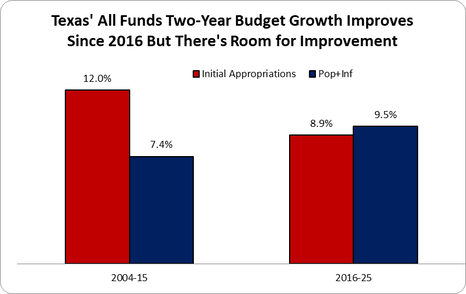





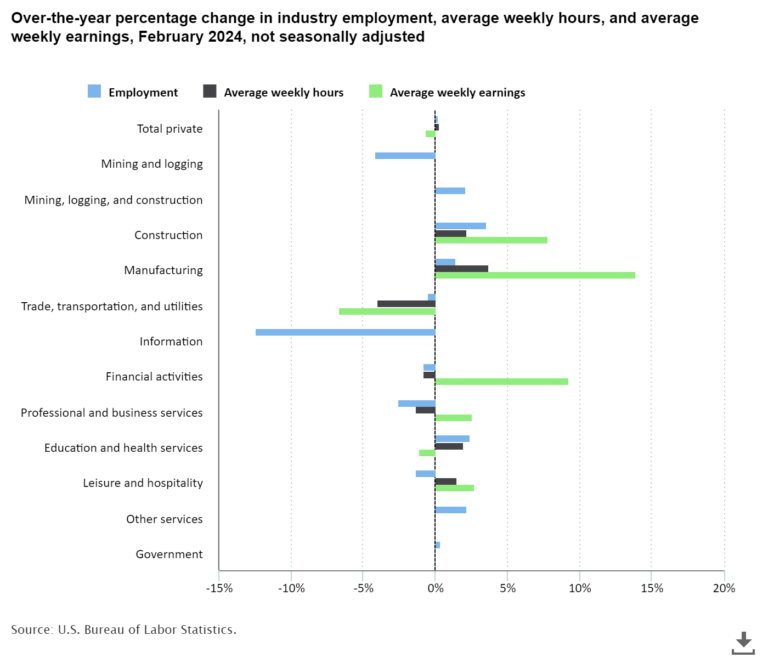
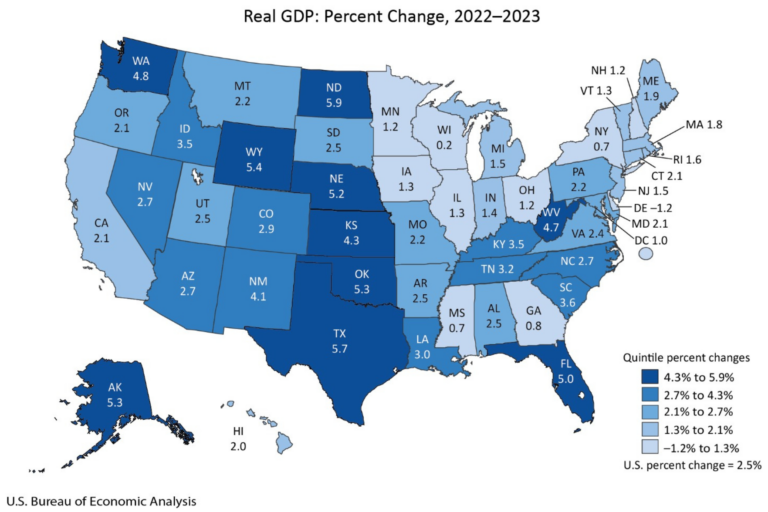

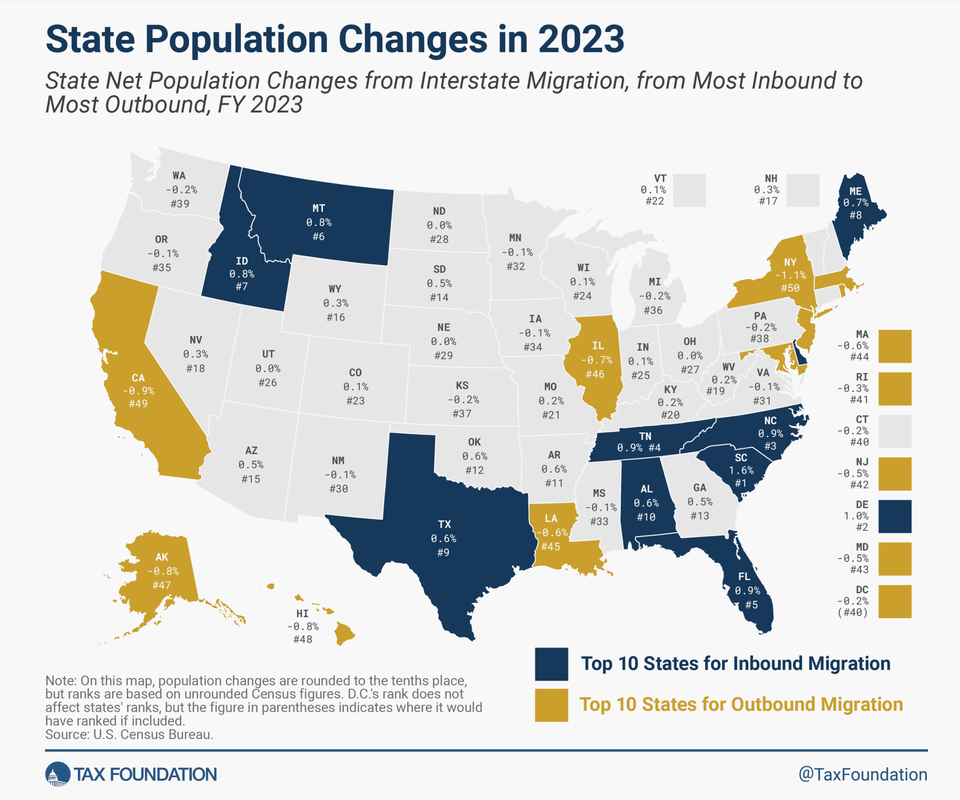
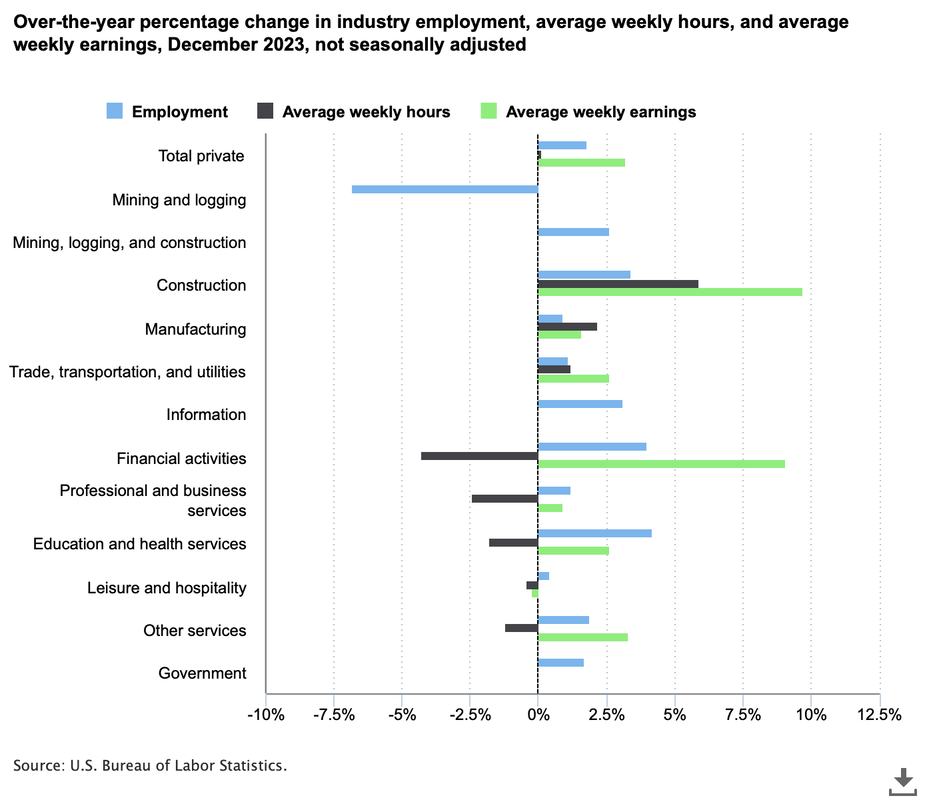
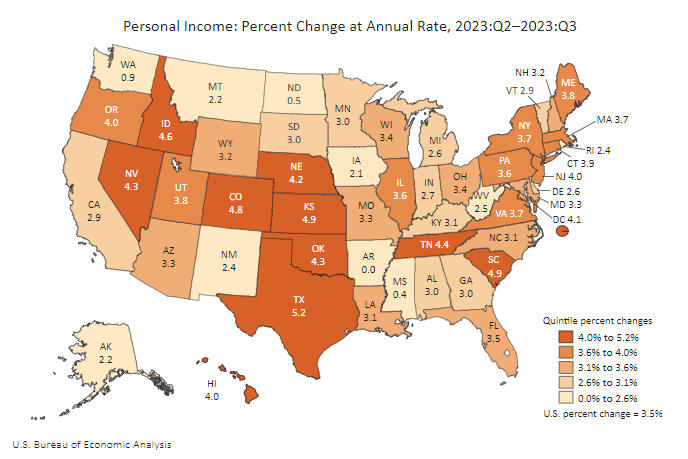
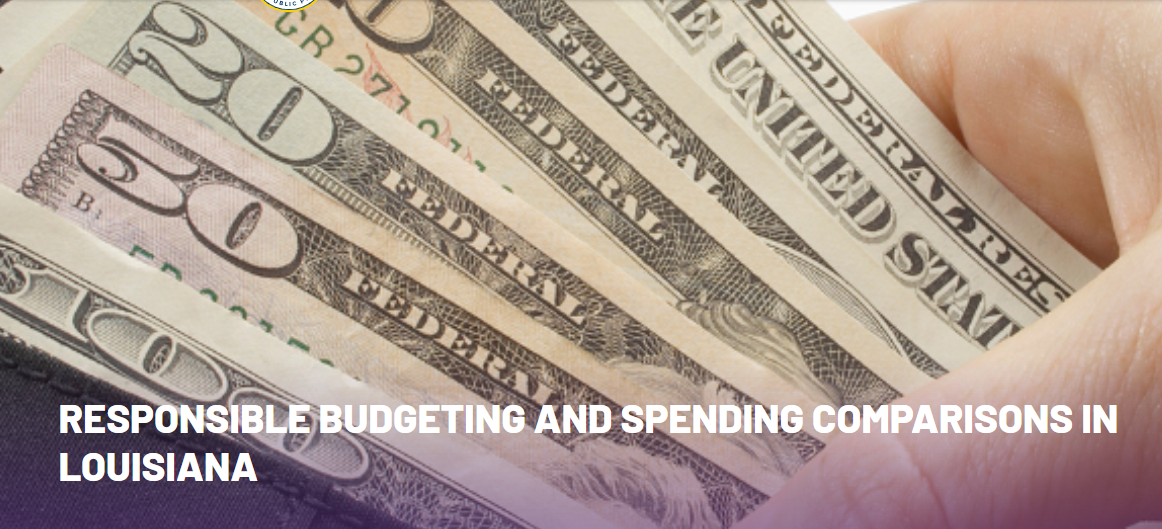
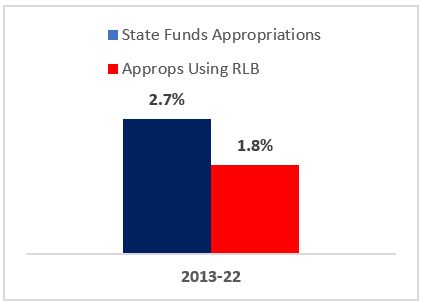
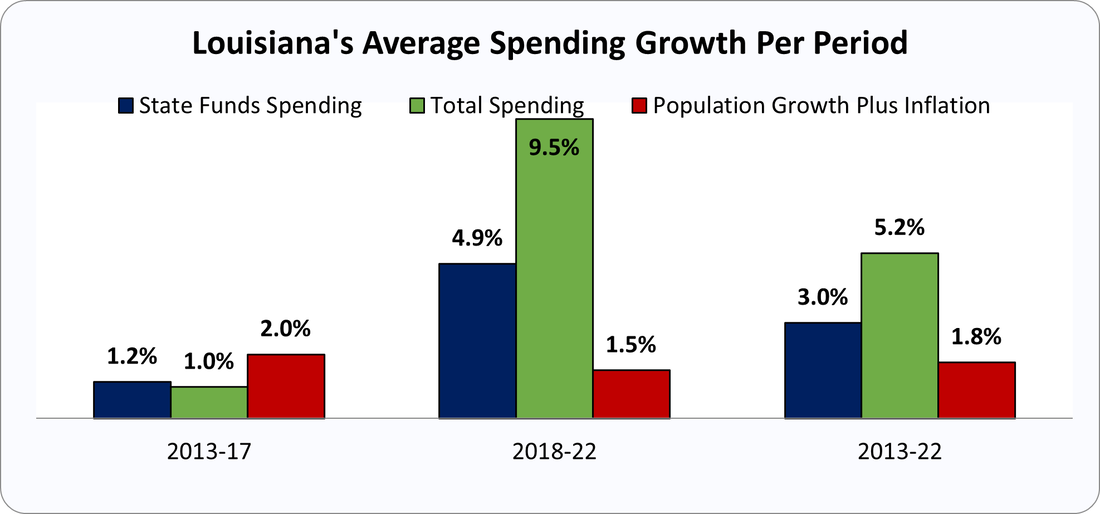
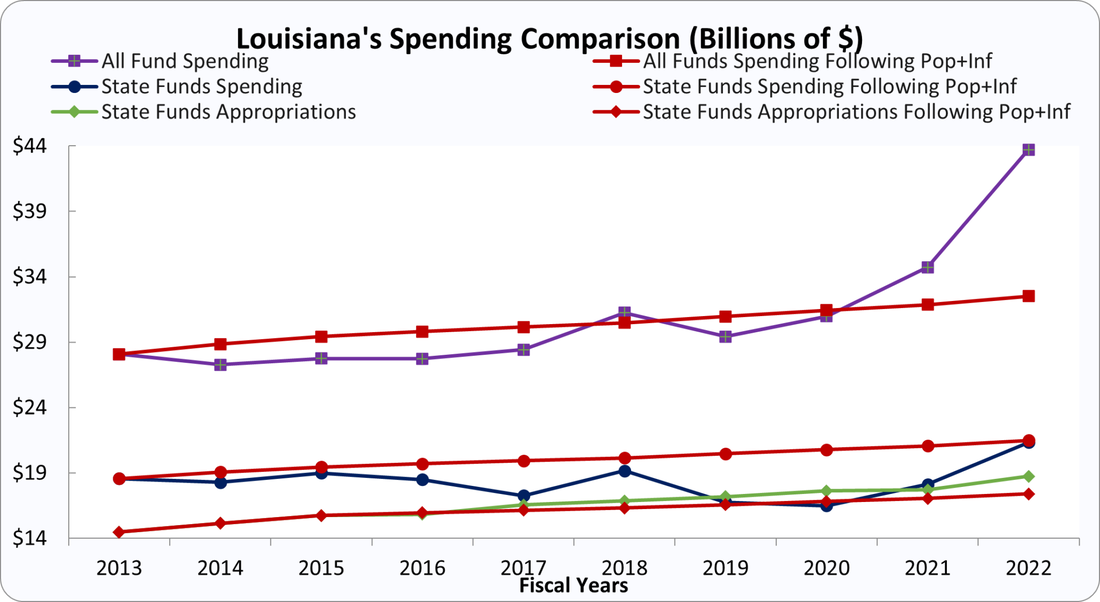
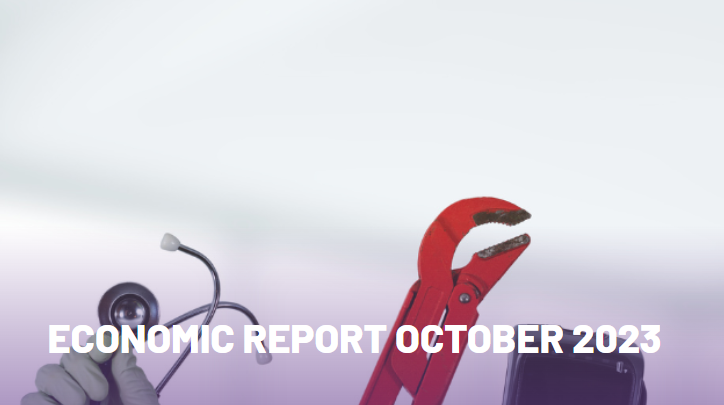
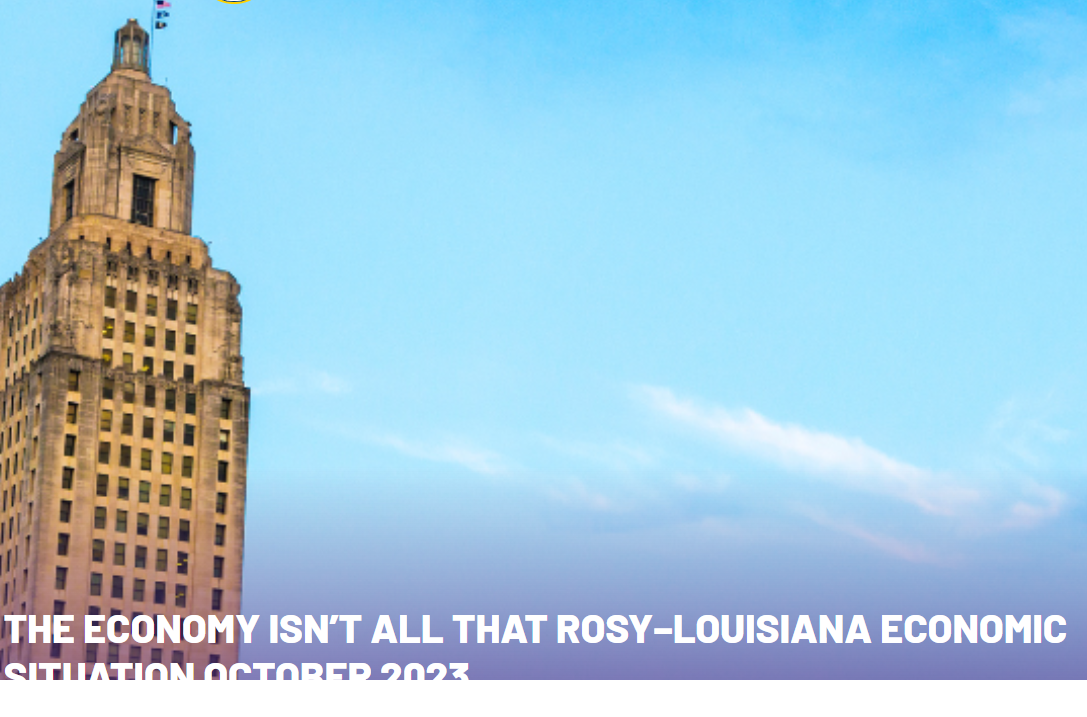

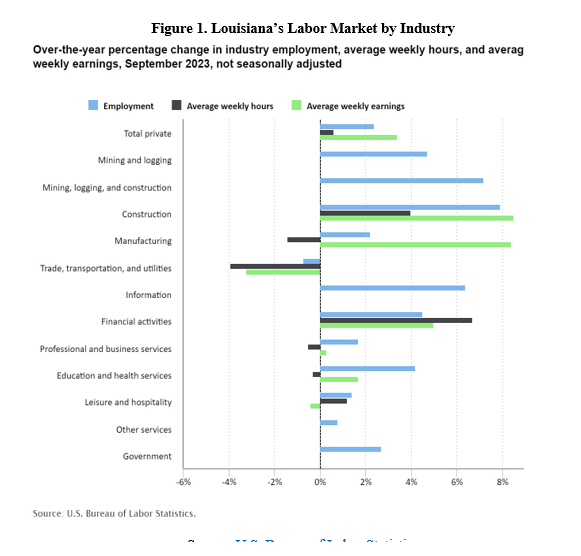

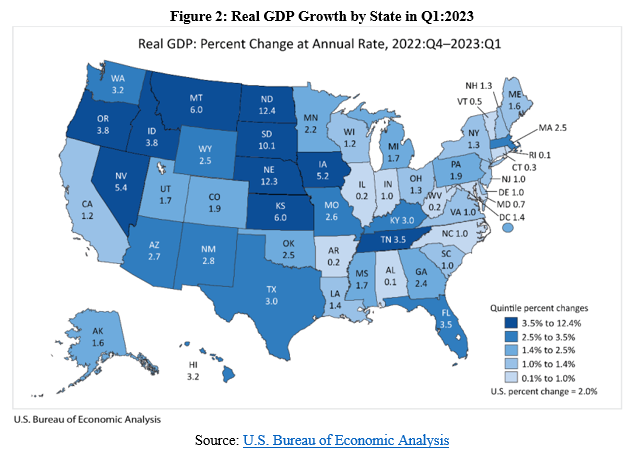
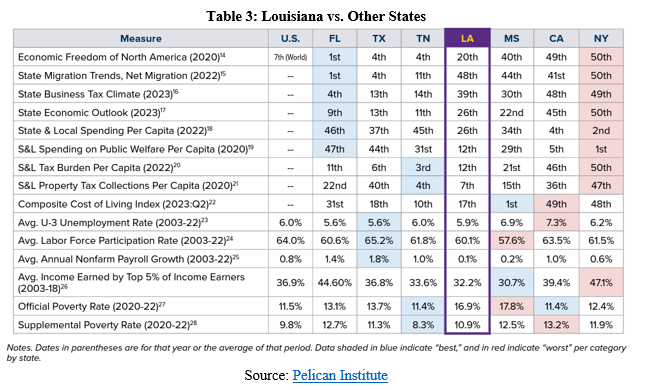
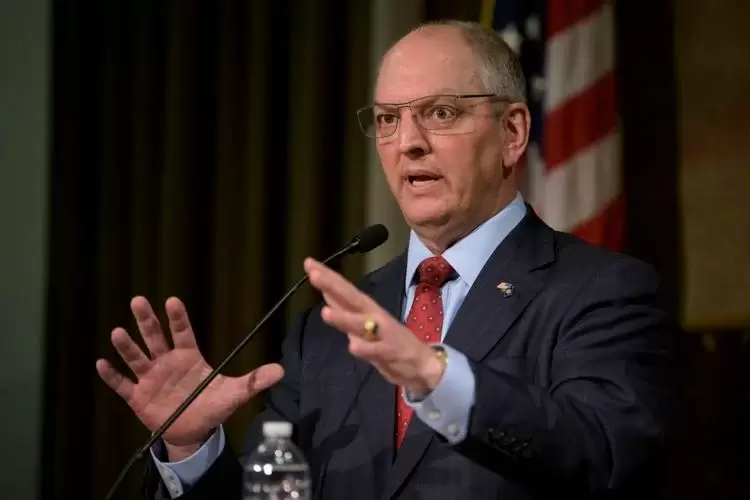
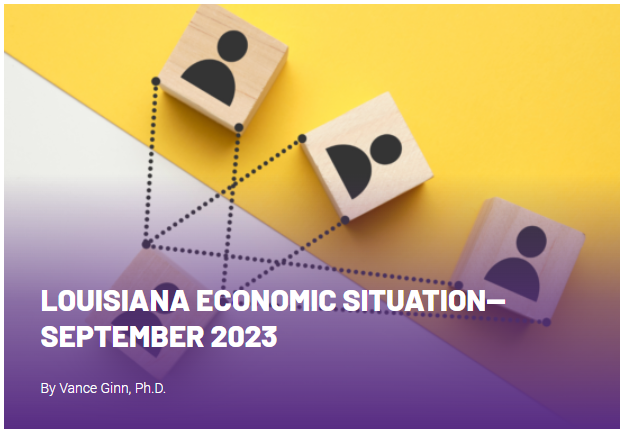

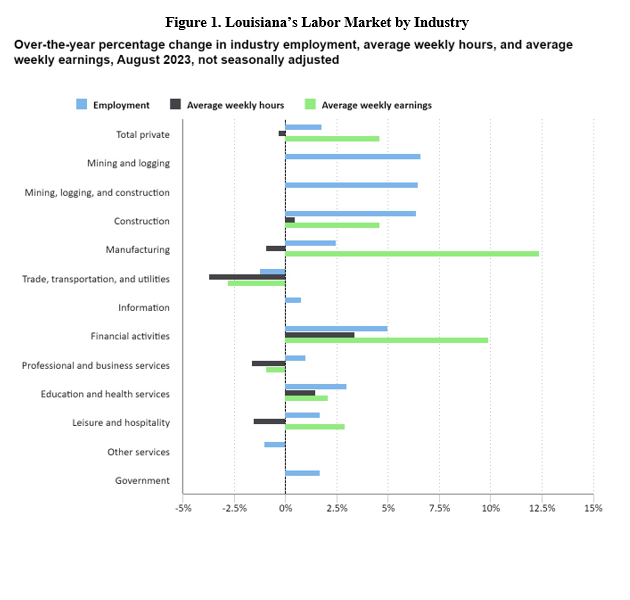

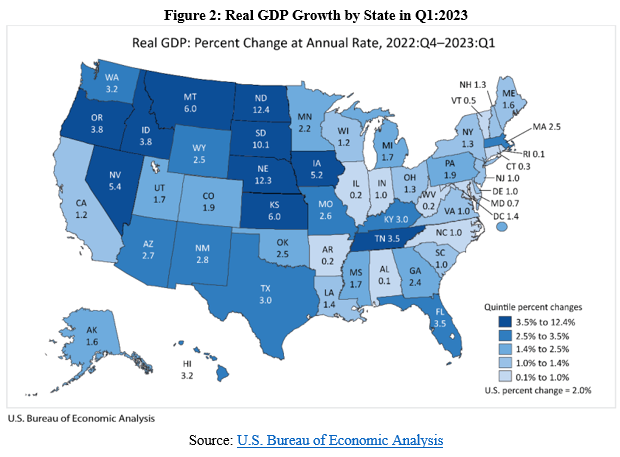
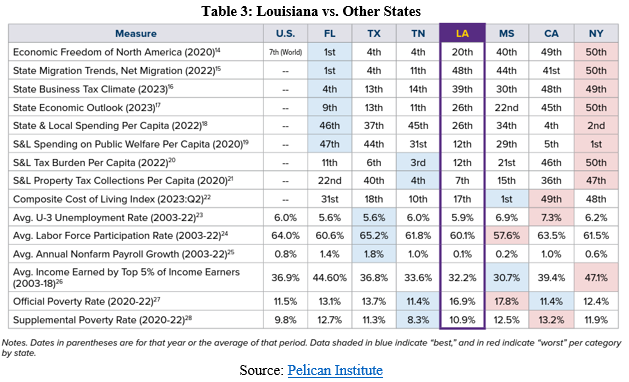

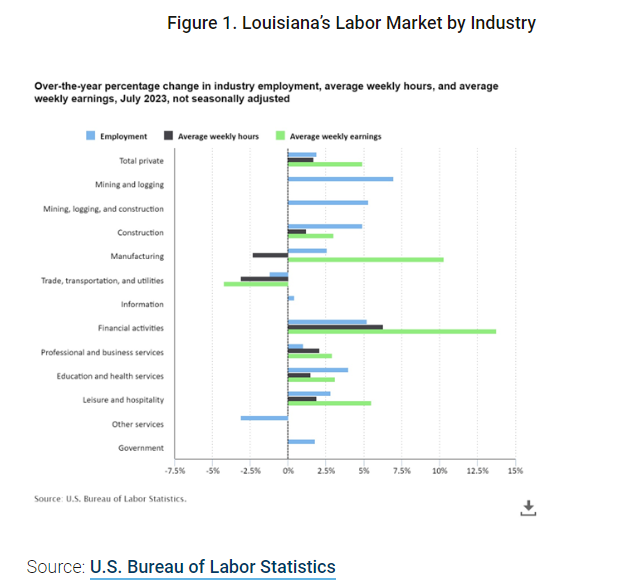

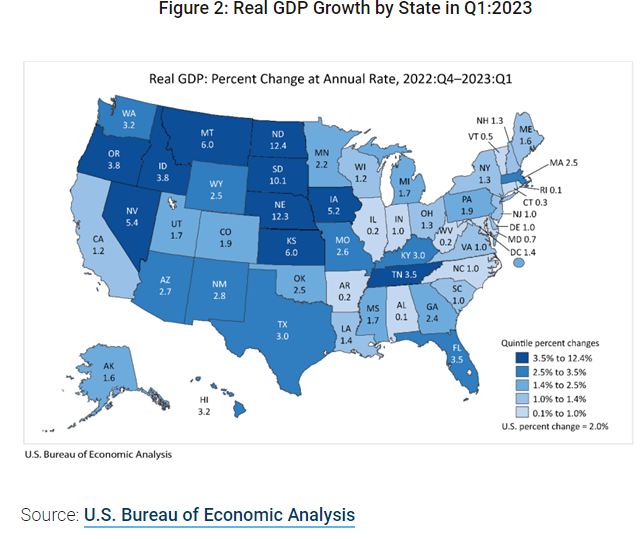
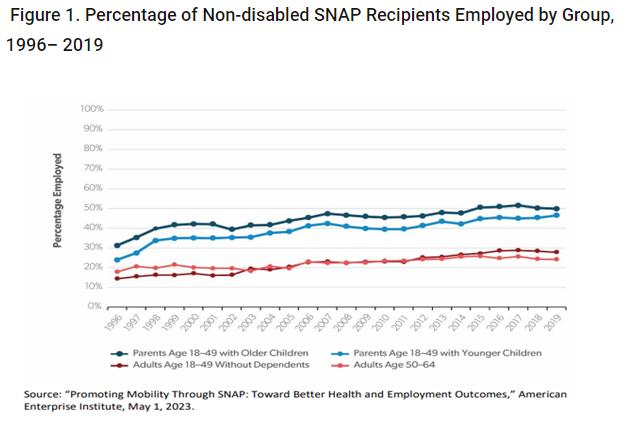
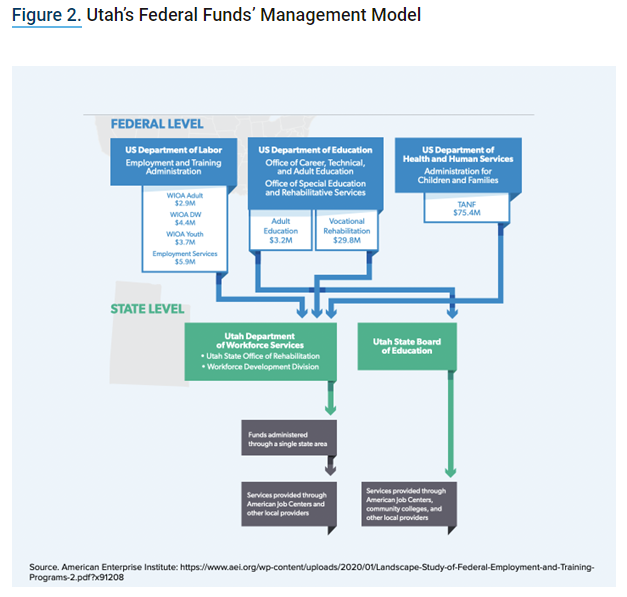
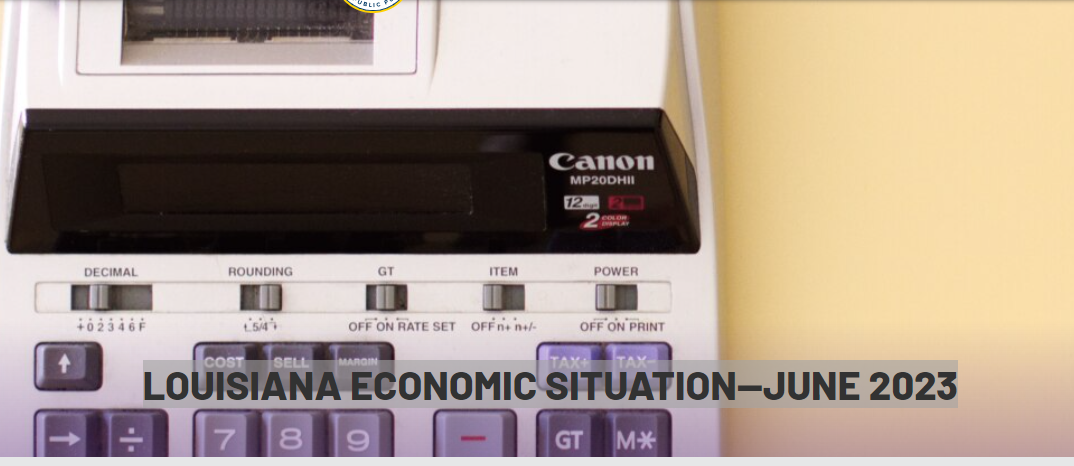
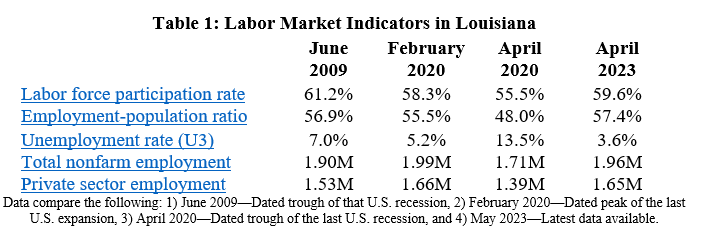
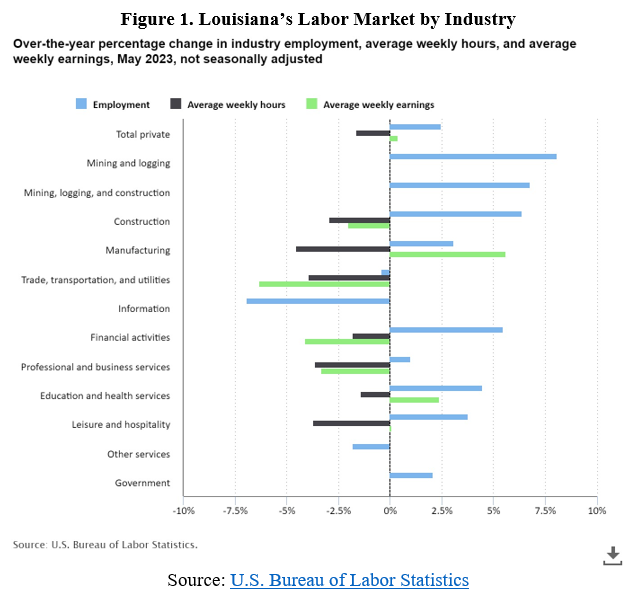

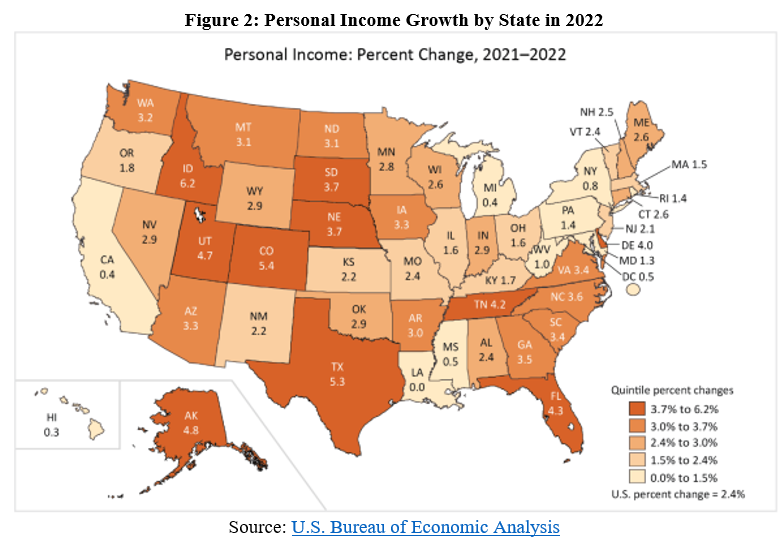
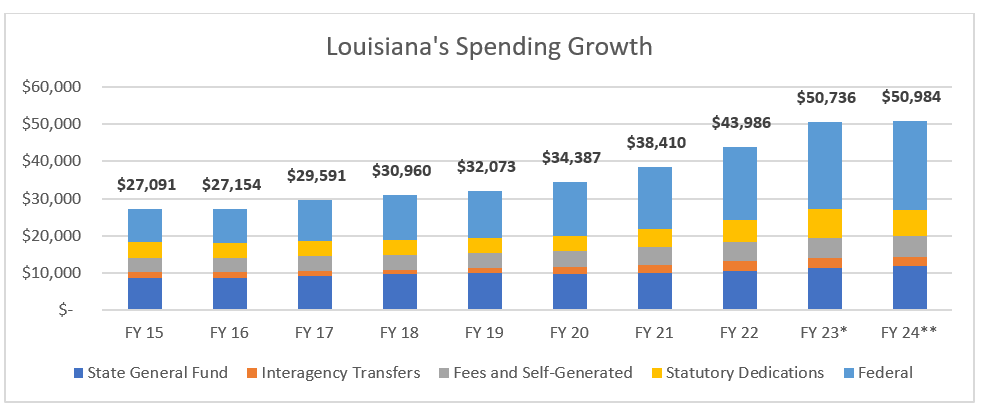
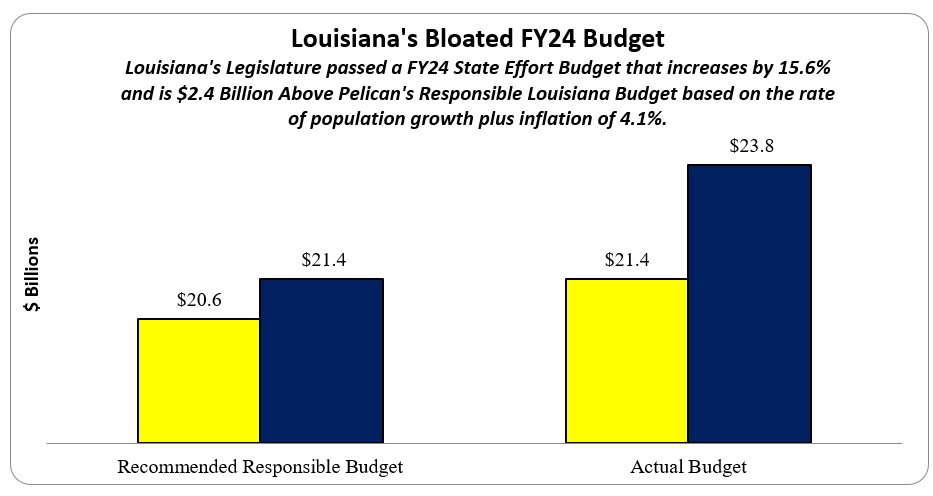
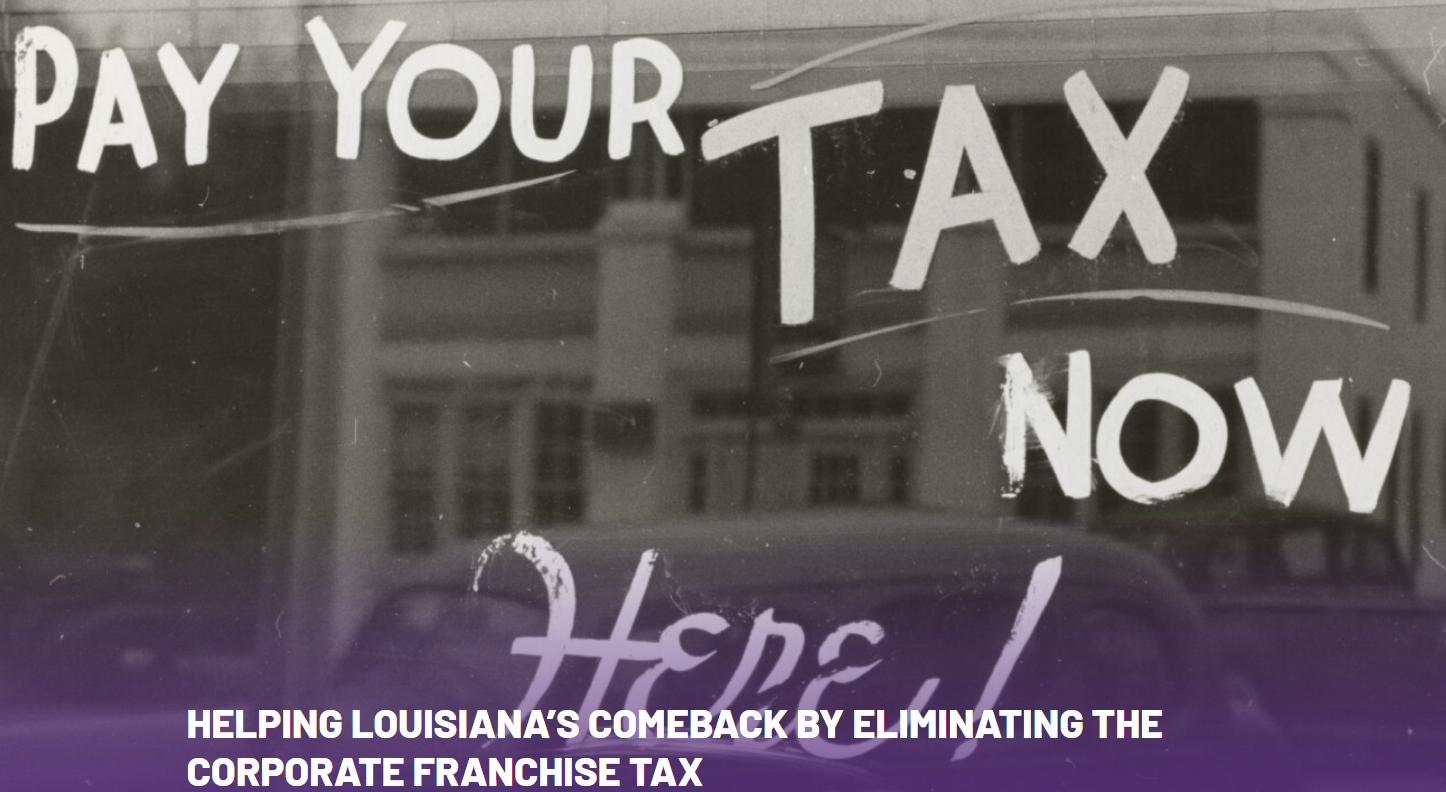
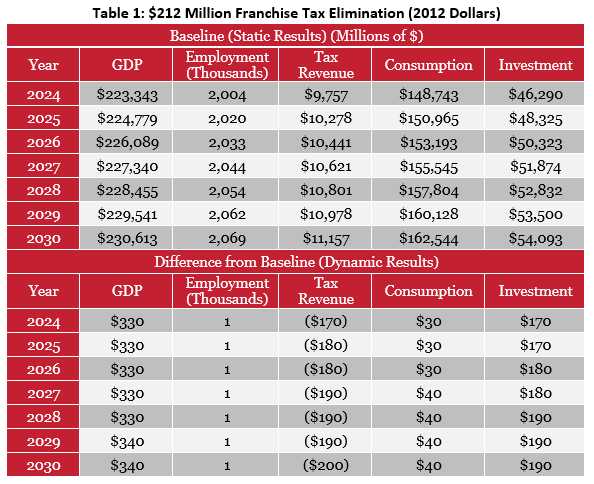

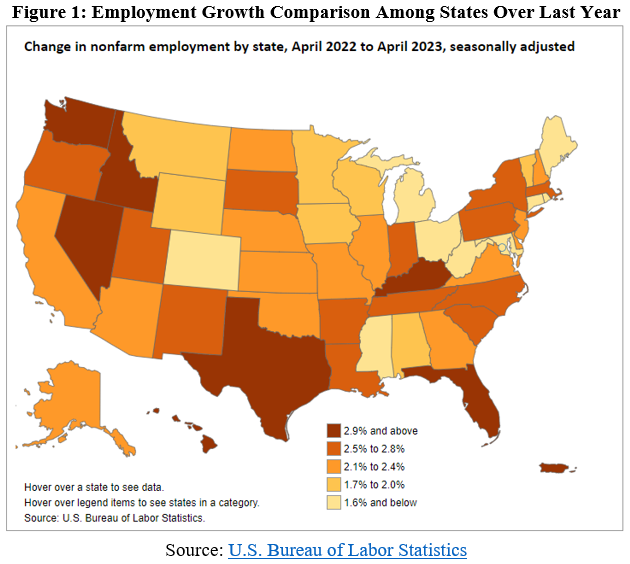
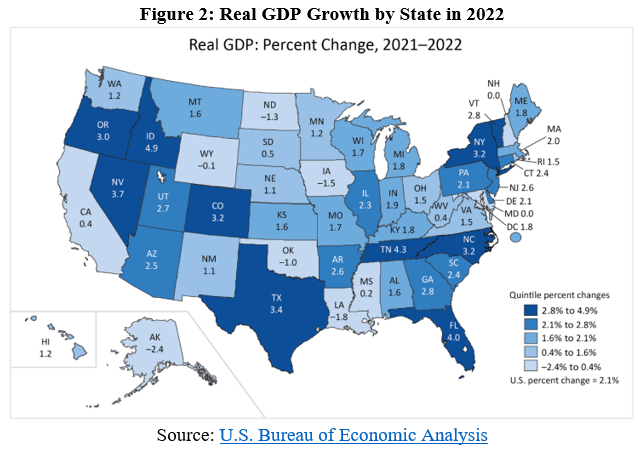

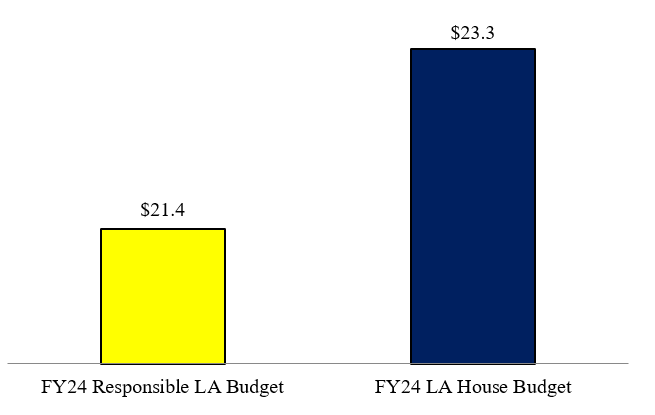
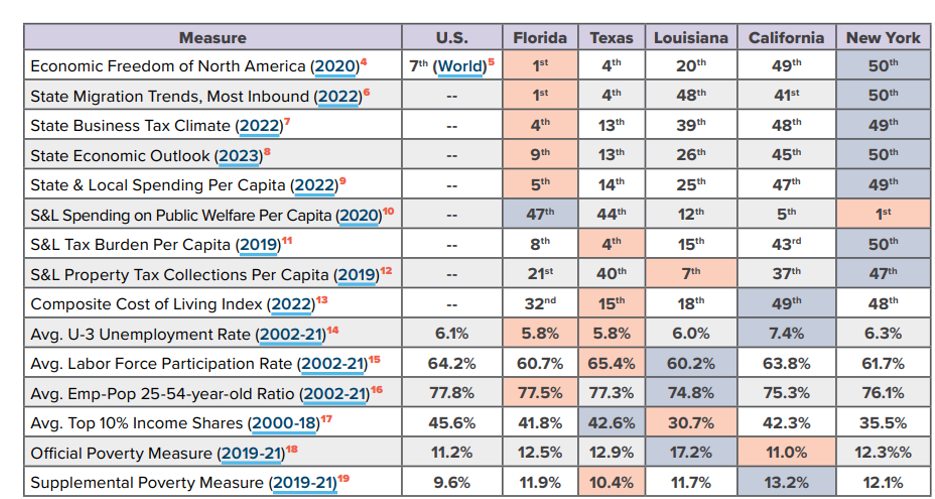
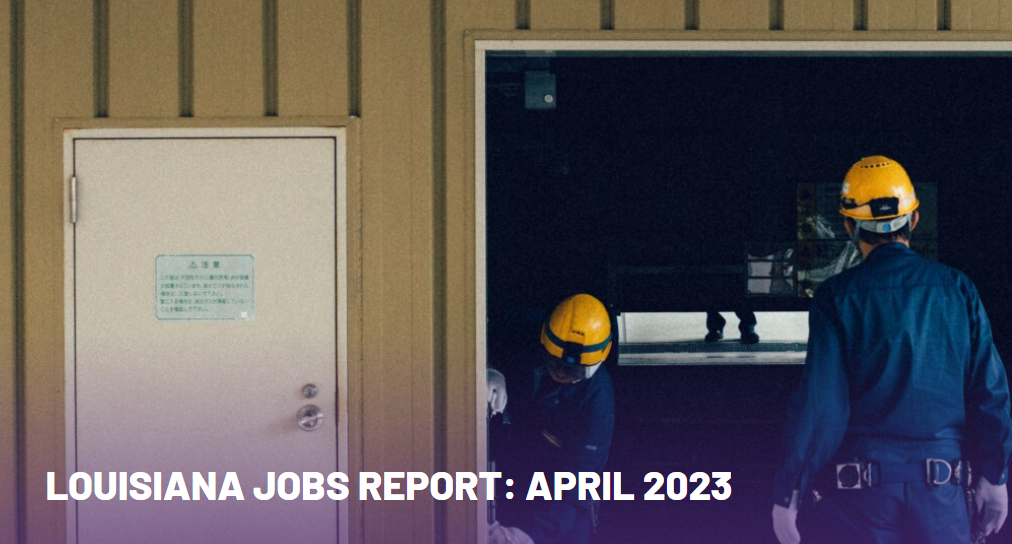
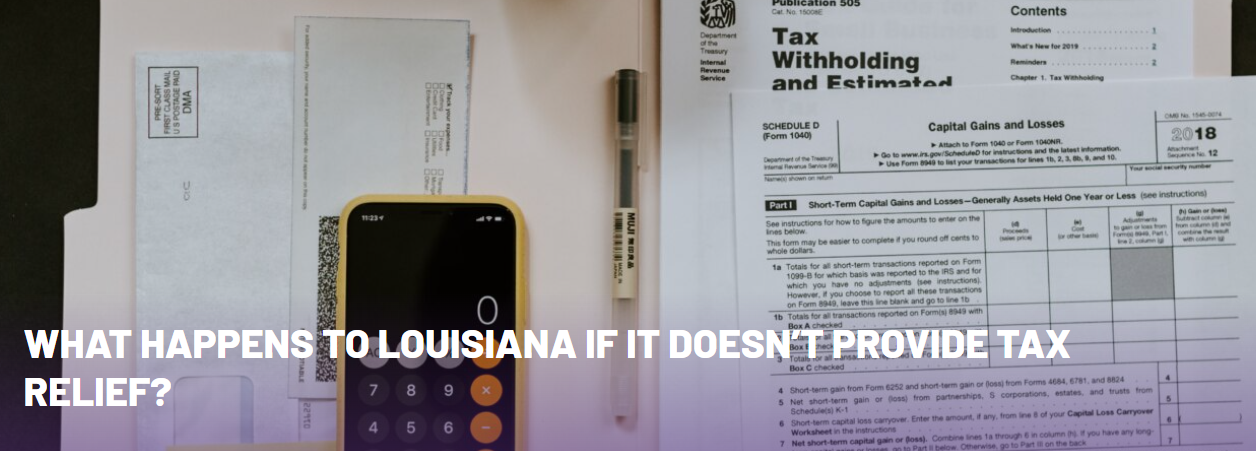


 RSS Feed
RSS Feed